
Written By
Eric Skelton, Shawn Setaro, and Jessica McKinney
Design By
Warren Cochrane
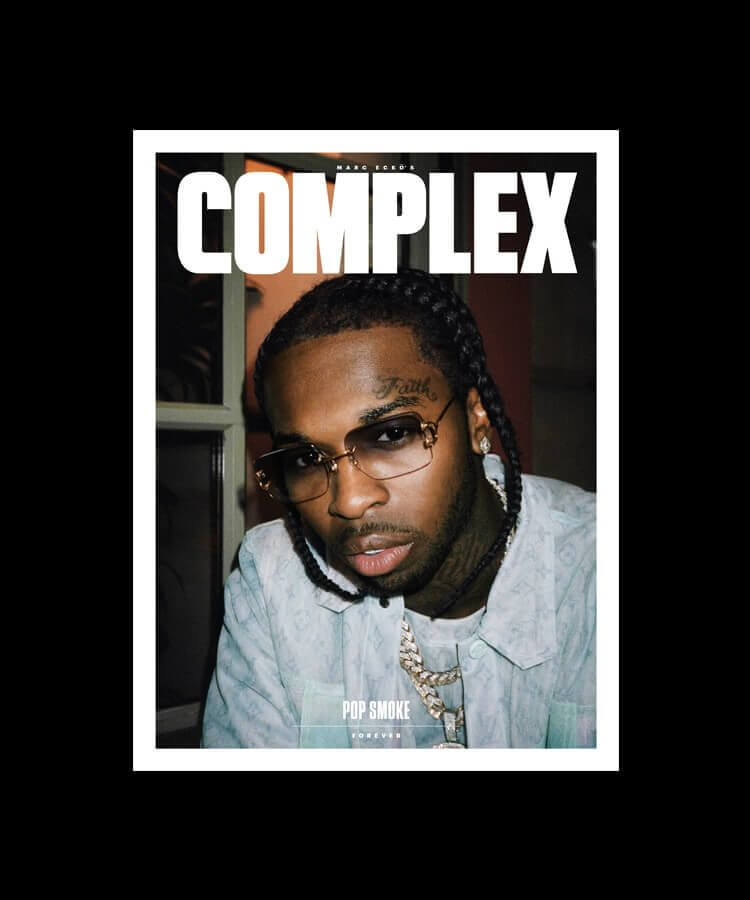
Three months before his 20th birthday, Pop Smoke sat down for a conversation that changed the rest of his life.
As the ink dried on his first recording contract, he was inside a New York City office building in April 2019, celebrating the occasion with his new label boss, Steven Victor.
“How long have you been rapping?” Victor asked, making small talk.
The truth was, Pop Smoke had only been rapping for a few months, so he deflected the question and offered up a new piece of information. “I used to sing before rapping,” he explained. “I sang in the church."
Victor was intrigued. The 39-year-old music executive had been keeping a close eye on the emerging drill scene in Brooklyn for months. When his associate Rico Beats introduced him to Bashar Jackson, a kid from Canarsie with an impossibly deep voice and hard-hitting drill records, Victor jumped at the chance to sign him to his new venture, Victor Victor Worldwide. But this revelation about Pop’s background as a singer came as a surprise.
Eager to show off his hidden talent, Pop Smoke queued up an unreleased song called “Something Special” and played it through the office speakers at an ear-splitting volume. Victor sat back and listened to his new signee sing the lyrics to Tamia’s 1998 R&B hit “So Into You” with unexpected ease.
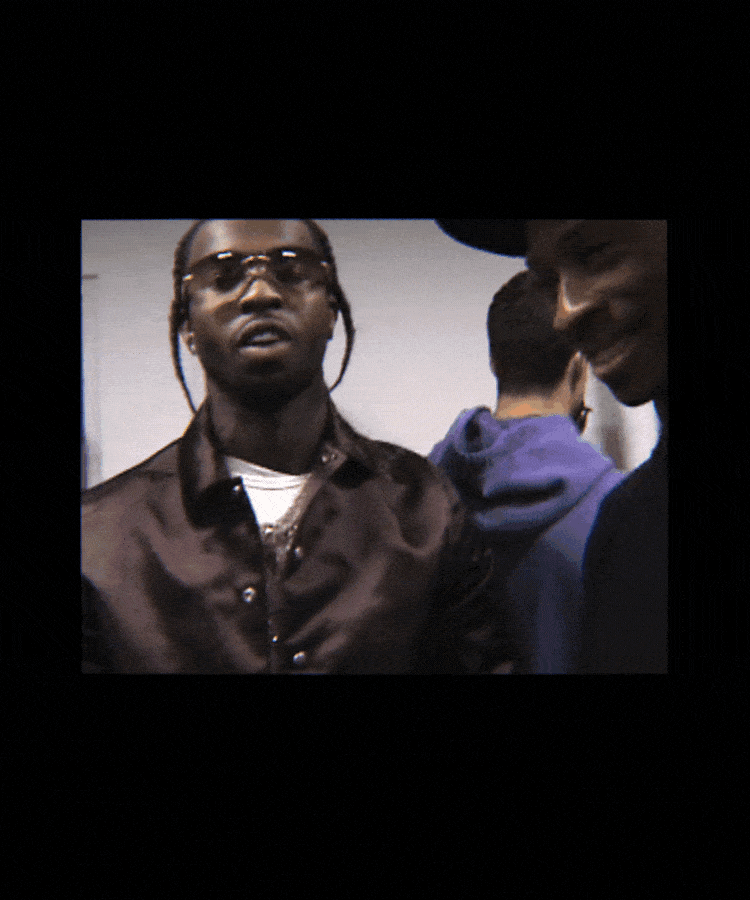
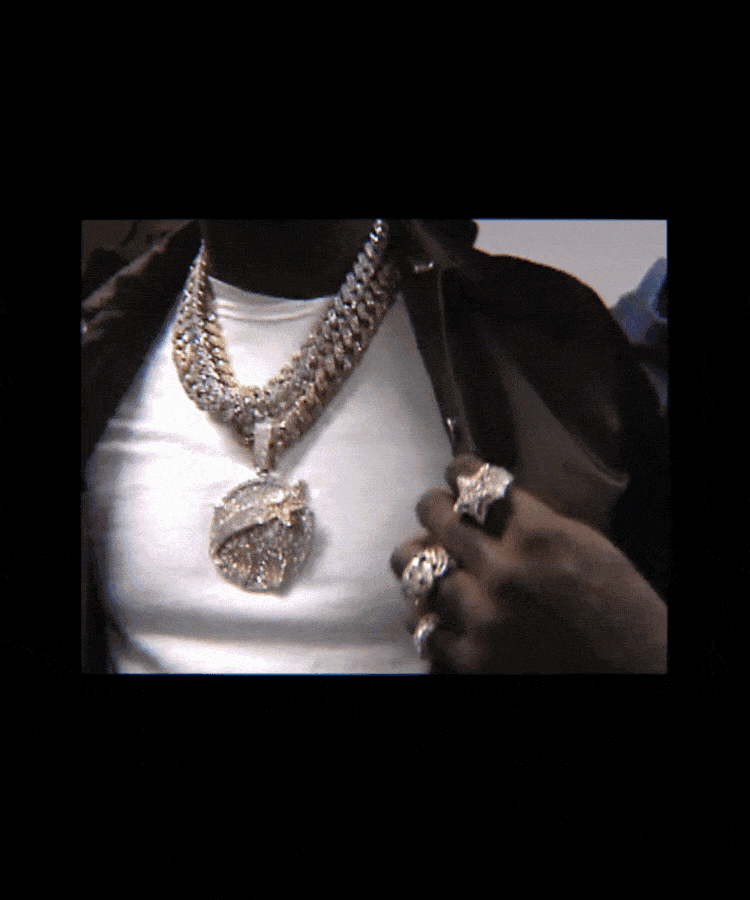
Shivam Pandya, director of artist management at Victor Victor, remembers hearing the song blasting through the walls of the office that day. Young artists came through to play music all the time, but this stood out above the others. “When I heard that song, I was just like, ‘Who is this? I want to hear that song again,’” he recalls. “Hearing his raw, gruffy voice on that beautiful instrumental was amazing. That’s just my favorite type of music: people who can’t really sing that well, but they have a voice that’s nontraditional and it works.”
Pop played a song called “What You Know About Love” next, which was anchored by a sample of Ginuwine’s “Differences” and showed more of the young rapper’s ear for melody. At this point, it was clear to Victor and everyone else in the room that Pop was more than “just another drill rapper from Brooklyn.”
Steven Victor’s gears were turning. Having worked closely with Kanye West as COO of G.O.O.D. Music, he understood that many of rap’s most successful artists had been responsible for ushering new sounds into the mainstream. So he hatched a plan. Pop Smoke would release a series of mixtapes that focused solely on the Brooklyn drill sound—raw, gritty street rap with bass-heavy production—positioning himself as the leader of an explosive subgenre that was taking over New York City. Then, once Pop was an established star with his own signature style, he would deliver a debut album that showed his melodic side with bigger, more commercial songs like “Something Special.” Pop would need to be patient, but when the time was right, he would get a chance to reveal the full scope of his talents.
The first steps of the plan worked even better than anyone expected. Within just a few months of that meeting, his 808 Melo-produced single “Welcome to the Party” had become the song of the summer in New York. Then he dropped a debut mixtape, Meet the Woo, filled with more street anthems, like “Dior” and “PTSD.” Brooklyn drill was quickly becoming the hottest new sound in the country—even Drake and Travis Scott were hopping on the wave—and Pop was undeniably the face of the movement.
While recording signature songs like “Christopher Walking” and “Shake the Room,” Pop couldn’t help but experiment with music that strayed far from drill, like the Mustard-produced “West Coast Shit” featuring Tyga. Faithfully following Victor’s strategy, though, he understood he still had more work to do, so he tucked those songs away and kept them for the debut album. For the time being, he put his head down and stayed focused on his next mixtape, Meet the Woo 2.
“We would have gone to Meet the Woo 5 if we had to, in order to make it to the point where he was established enough to have a No. 1 record and have global impact,” Victor says. “He was fine and I was fine with that taking however long. We were willing to go all the way there with the drill shit.”
It didn’t take five mixtapes to get to that point. By early 2020, following the release of his second tape, everyone knew Pop was ready for the next phase of the plan. Now 20 years old, he was spending his time in the Bahamas with A-list producers, sitting down for deep conversations with his idol 50 Cent, and hanging out at Paris Fashion Week with Virgil Abloh and Quavo. Successfully bringing a new sound to his city, he started calling himself the King of New York, and he had the buzz to back it up. Now, he had his sights set on taking over the rest of the world. It was finally time for his commercial debut.
In mid-February 2020, Pop Smoke flew out to Los Angeles on a mission to record as much music for the album as possible. Near the end of the trip, he was in good spirits, cracking jokes in the studio with his go-to producer 808 Melo and making songs with Christian “King” Combs. Nearly a year after that fateful meeting in Steven Victor’s office, he could sense they were closing in on the most exciting part of the plan. He was about to reveal to the world what he was really capable of.
On February 19, at 4:30 a.m., Bashar Jackson was shot and killed by an intruder at his rental home in the Hollywood Hills. (The murder remains unsolved.) Just like that, a bright young talent was taken from the world at the age of 20. Pop Smoke was deprived of the chance to witness the release of his debut album, leaving Steven Victor and the rest of his inner circle the responsibility of finishing what Pop had started.
Over the next four months, Pop Smoke’s team worked tirelessly to make sure the late rapper’s wishes were fulfilled and his debut album was out in time for summer. With a little help from co-executive producer 50 Cent and dozens of contributors, Steven Victor made it a personal mission of his to carry out the final stage of the plan he devised with Pop.
On July 3, the 19-song album Shoot for the Stars Aim for the Moon arrived, finally revealing all of Pop Smoke’s colors to the world.
In the words of 40 collaborators who helped bring it to life—including 50 Cent, Quavo, Roddy Ricch, Future, Tyga, Swae Lee, Karol G, and Steven Victor—this is the story behind Pop Smoke’s posthumous debut album.
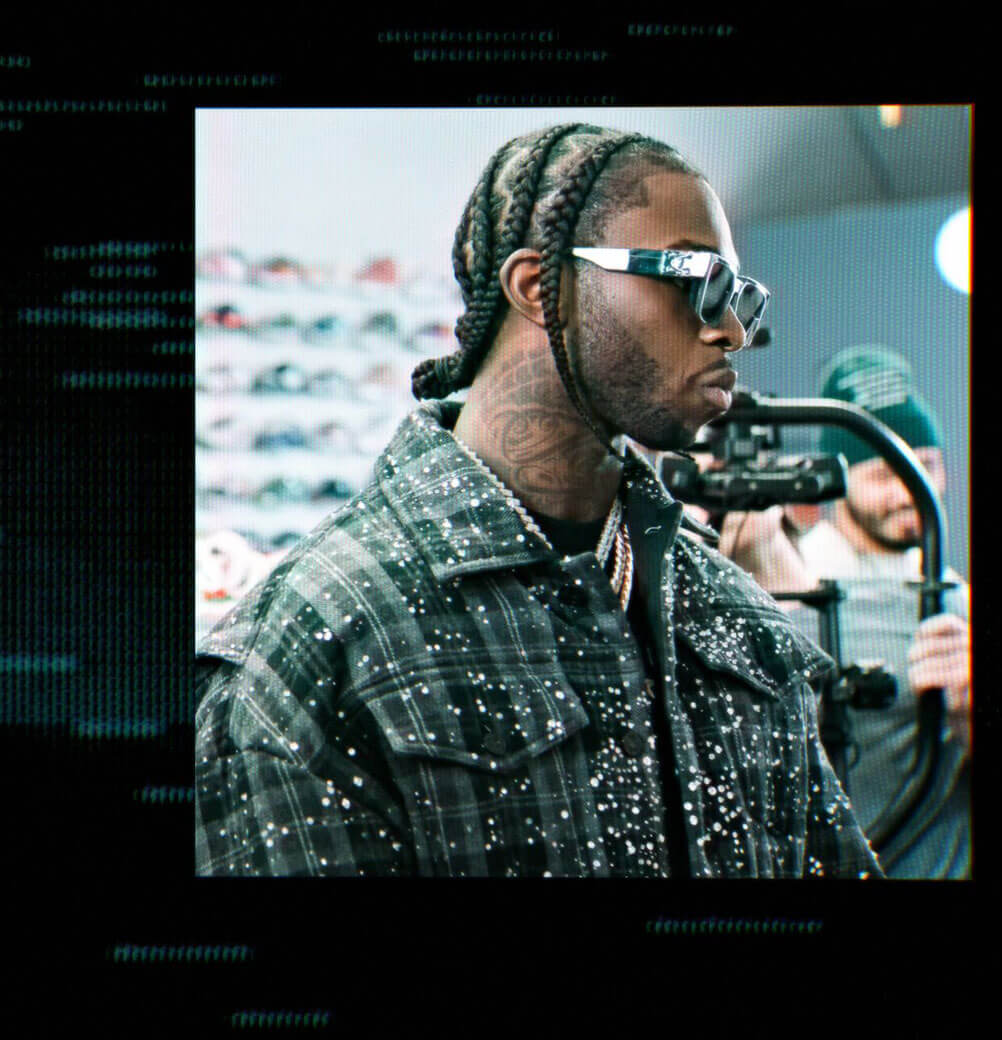
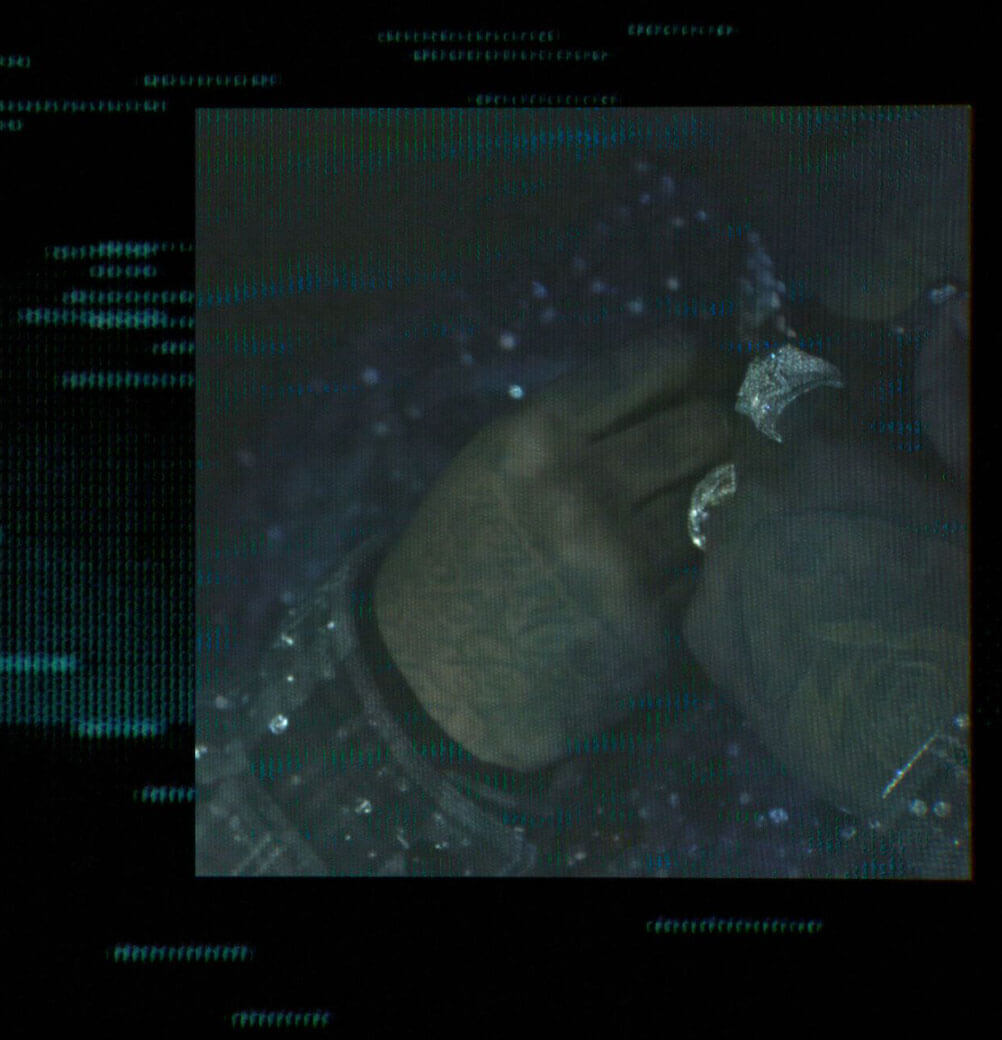
Pop Smoke recorded the first songs for Shoot for the Stars Aim for the Moon before he was signed, and he finished the final records on the last days of his life. He always wanted his debut album to connect with fans on a global scale and reveal every side of him as an artist.
Steven Victor (CEO and founder, Victor Victor Worldwide): The idea for the debut album was always for it to showcase his overall talent and for it to go No. 1. The goal was to have global impact.
Jess Jackson (engineer): We had just been thinking of Meet the Woo 2 like, “That’s the mixtape. We’re going to knock this out real quick and put that to bed, and then we’re going to get onto the real album.” We were so excited for this debut album because it was going to be tenfold the quality of Meet the Woo. He was just like, “Man, the next one is going to be fire. We’re going to take over the world.”
Pusha-T (rapper): After getting his feet wet in the mixtape circuit and having success with those records, his mind was already set in where he was going next. He wanted people to see how he was maturing musically. That was a big goal with this project.
Steven Victor: Pop and I always had the same conversation about the debut album. Meet the Woo 1 and Meet the Woo 2 are each one thought. And the album was supposed to be a series of thoughts. It was supposed to be the whole picture of what he could do musically and creatively. It’s the whole picture of what’s in his mind and in his heart. The mixtapes were just one sound, and the album is where he would get those different thoughts out, so people could get to know him.
Swirv (producer): People used to say that he needed to switch things up more, but they weren’t sure if he could do other genres. I think this album proves that he can do other genres, whether it’s a 50 Cent-type of vibe or slow R&B songs or drill. This proves a lot of people wrong.
Steven Victor: Pop wasn’t dead set on the drill shit. He was like, “Yo, I got all types of records. I want to make global music. I don’t want to just be a local artist.” I know what kind of debut album he wanted to make. He wanted to have Afro shit on there. He wanted to have singing shit on there. He wanted to have drill music on there. He just wanted to have a bit of his personality all over the album. He wanted all these different colors.
Xiarra-Diamond Nimrod (Manager of Marketing Strategy, Republic Records): He wanted to make music for everyone. He wanted to give ladies love songs to vibe out to just as much as he wanted to give the hood something they could relate to.
Tyga (rapper): He was ready to expand and go global with his sound. He wanted to make more chick records and more melodic songs.
50 Cent (rapper, co-executive producer): Pop evolved into a whole other thing. This album, musically, has more depth to it than those tapes. Those tapes were for him to assert himself. Those early records were defining him, his lifestyle, and everything else around him. After “Dior” came out, there were three other records that felt very similar on that tape, with the same tempo and drums. But by the time this record comes out, it’s a whole different vibe.
Shivam Pandya (general manager, Victor Victor Worldwide): Pop would always say, “You know, I’ve got five No. 1s just sitting here on the phone.” But Steven was great at explaining things and making sure that he was on board with the plan. Pop very much understood it was a bigger game than just having the immediate hit. There were a lot of things he could have done that would have been very successful in the short term. But he completely bought into the long-term vision. He was like, OK, instead of just having one platinum record, let’s go all the way with it. He understood, even at such a young age, that you can sacrifice a little bit now for the bigger payday.

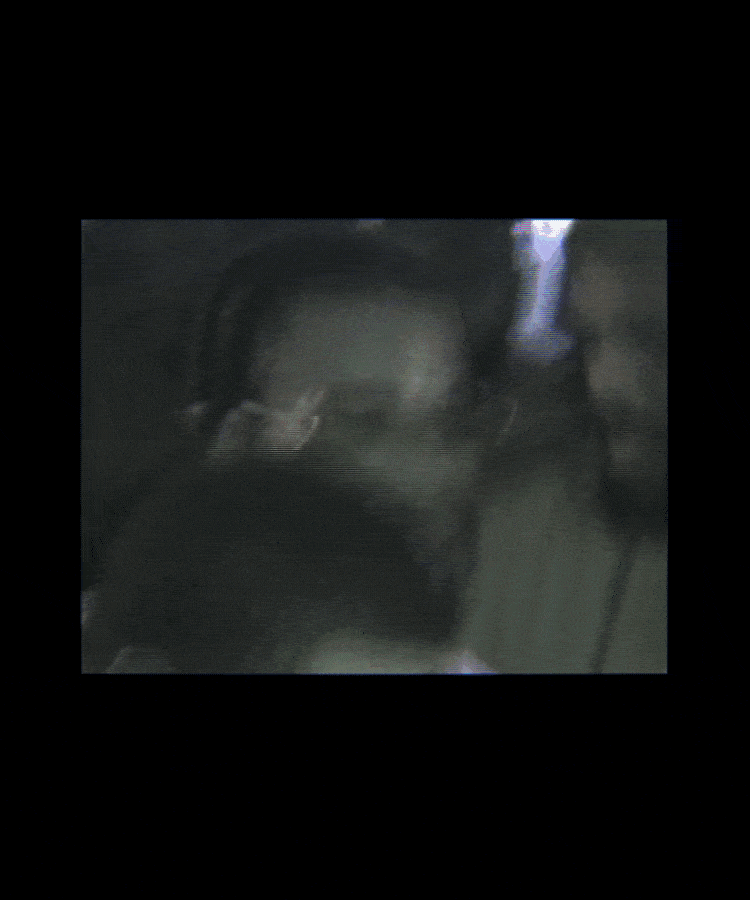
50 Cent: To me, he was still in the mixtape phase. He was still where I was at during Guess Who’s Back? and 50 Cent Is the Future. There were just two tapes that went out. I felt like he was blossoming into who he was going to be. You can hear, musically, how things shifted. When they’re drilling, the production feels aggressive, because they’ve got to be competitive with everybody else. But when he relaxed, and he was making records? That’s where you could see he was a little better than those other guys.
Steven Victor: Pop always had a great ability to make structured songs. Nowadays, artists can make songs with one verse or, like, three hooks. But the way he made songs was really structured, like throwback artists. He’d have a hook, verse, hook, and a bridge. When he started, he was doing the drill shit, and that was super easy for him. Then he started finding different pockets to put melodies in. He was really finding his vocal tone when he was singing.
Shivam Pandya: He would be like, “You know I’m, like, an award-winning singer, right? Why are you surprised?” Because when he wasn’t listening to rap, it was all R&B music. That was his favorite genre. He knew a great deal about it. We would be riding around in a car, and he would just come up with a melody and start recording a voice note. He would do things in that singsong-y way, and he would easily identify phrases that he wanted to say and put it down in a song. The drill stuff was his introduction to everybody, and it opened up the audience. But the singing, that was going to be where everything changed to the biggest degree possible.
Swirv: I remember he’d record some songs, and he’d be like, “Oh, this is too good for the mixtape. Maybe we should keep it for the album.”
Xiarra-Diamond Nimrod: He would always say that he was “saving heat for the album.” He wanted to show everyone that he knew how to sing, body a drill beat, and put his own spin on classics. It was all effortless for him.
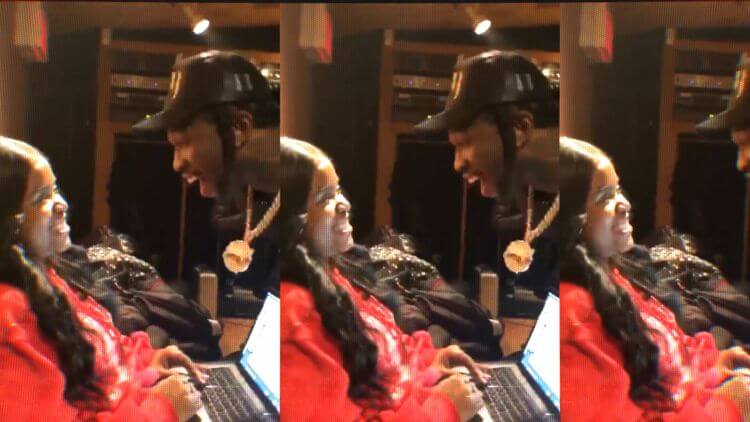
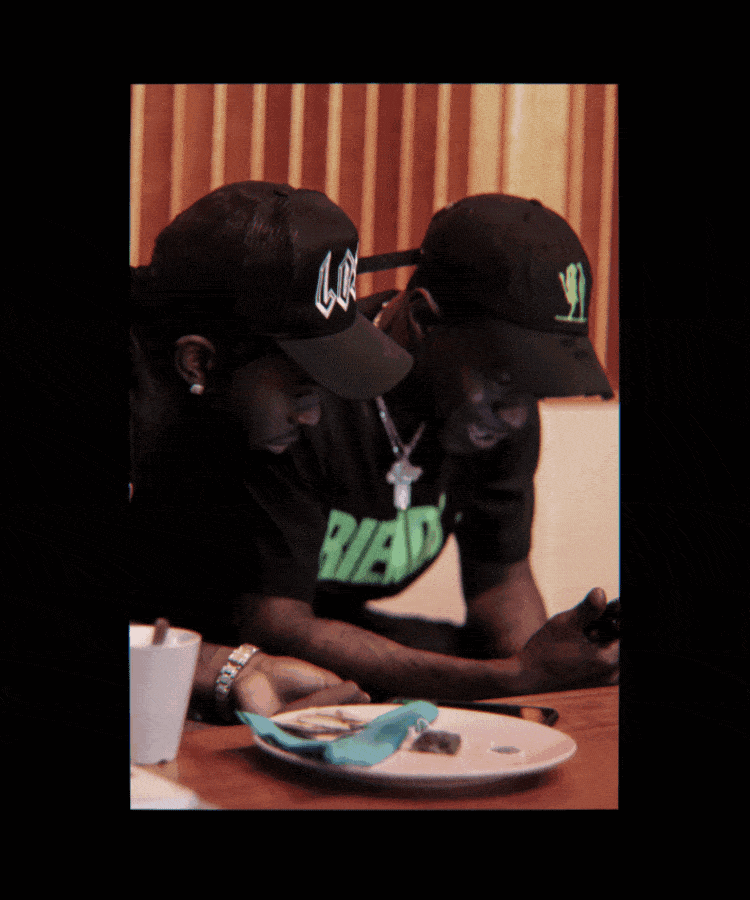
Steven Victor: We were recording this album everywhere. He made a couple of these songs in London and four or five of them in the Bahamas. He also recorded in New York, Paris, and L.A. The whole time, he was traveling like crazy, and sometimes it was grueling. He was a 19-year-old kid, fresh out of Canarsie, Brooklyn. He wasn’t used to traveling to L.A. for two days, then to London for a day, and then to Miami. He would never be in the same state for more than, like, a week.
Shivam Pandya: What he did to pass the time was go into the studio. It was almost like a ritual, just to finish the day. I think it’s where he felt comfortable, and had a place that he could control.
Steven Victor: We could never plan things out super far in advance. He’d always change his mind or get busy. It would be, like, five o'clock, and he’d hit me and be like, “Yo, we doing studio tonight?” So I’d call all the studios in the city right away and book something.
Benjamin Lust (A&R, Victor Victor Worldwide): Pop was kind of nocturnal, unless he had promo early in the morning. He’d get a studio session for 11 p.m. Then he’d make anywhere between two and eight songs from 11 p.m. to 7 a.m. He’d sleep until 2 p.m. or 3 p.m. and then do it all again the next day. He was really a workaholic.
Steven Victor: We were always working on the album in real time. Whatever he was feeling emotionally or creatively, he just laid it down in the moment. Then we went back to it later and figured out what to do with it. He was able to record so much in such little time because we were both determined to get to where he was going. We didn’t know it was going to happen this fast. I didn’t anticipate him blowing up within seven or eight months of us working together. I thought it would’ve been, like, an 18-month process.
Swirv: His studio atmosphere leaned towards a party vibe. As soon as I came into the room, he asked me to play beats straight away. When he heard a beat, he’d start rapping over it, mumbling, and trying to catch the flow. He usually wouldn’t go off into a booth by himself, though. He’d be in the main room with everyone. The mic would be there right next to the engineer. Everyone else would be in the back, and he would just start going in, off the top.

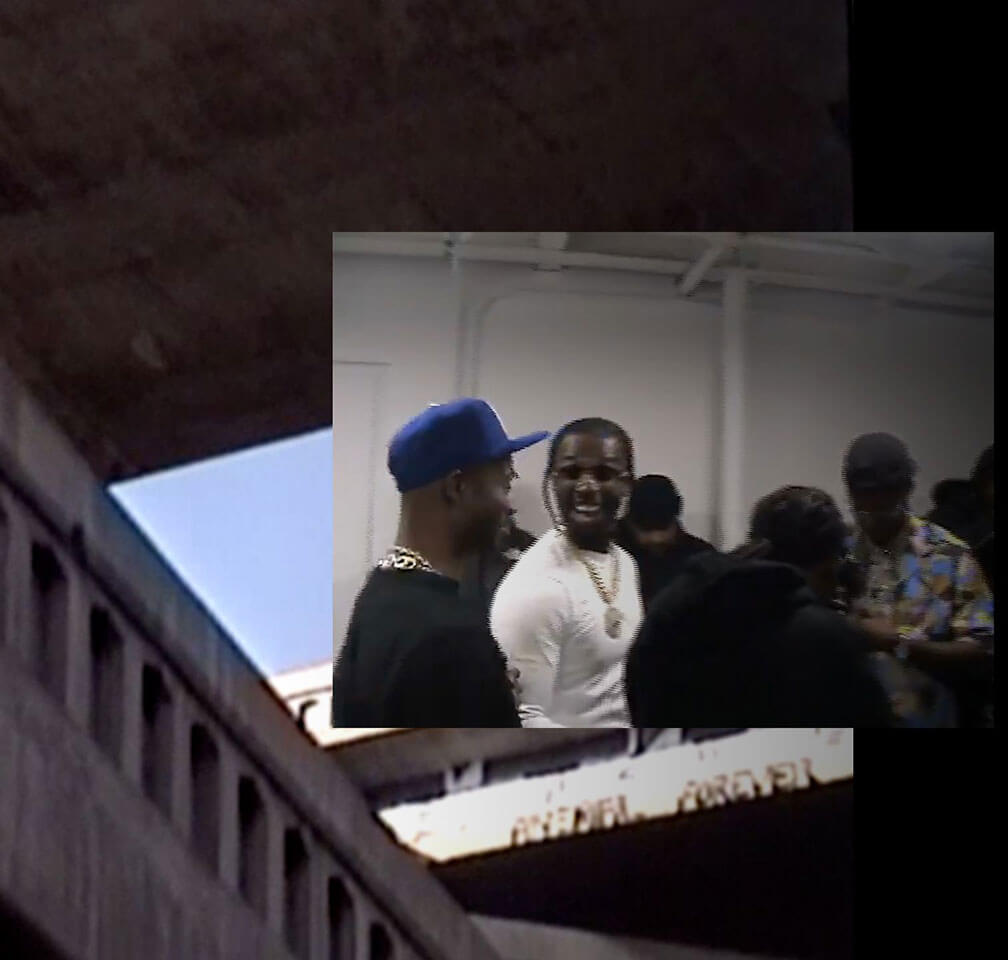
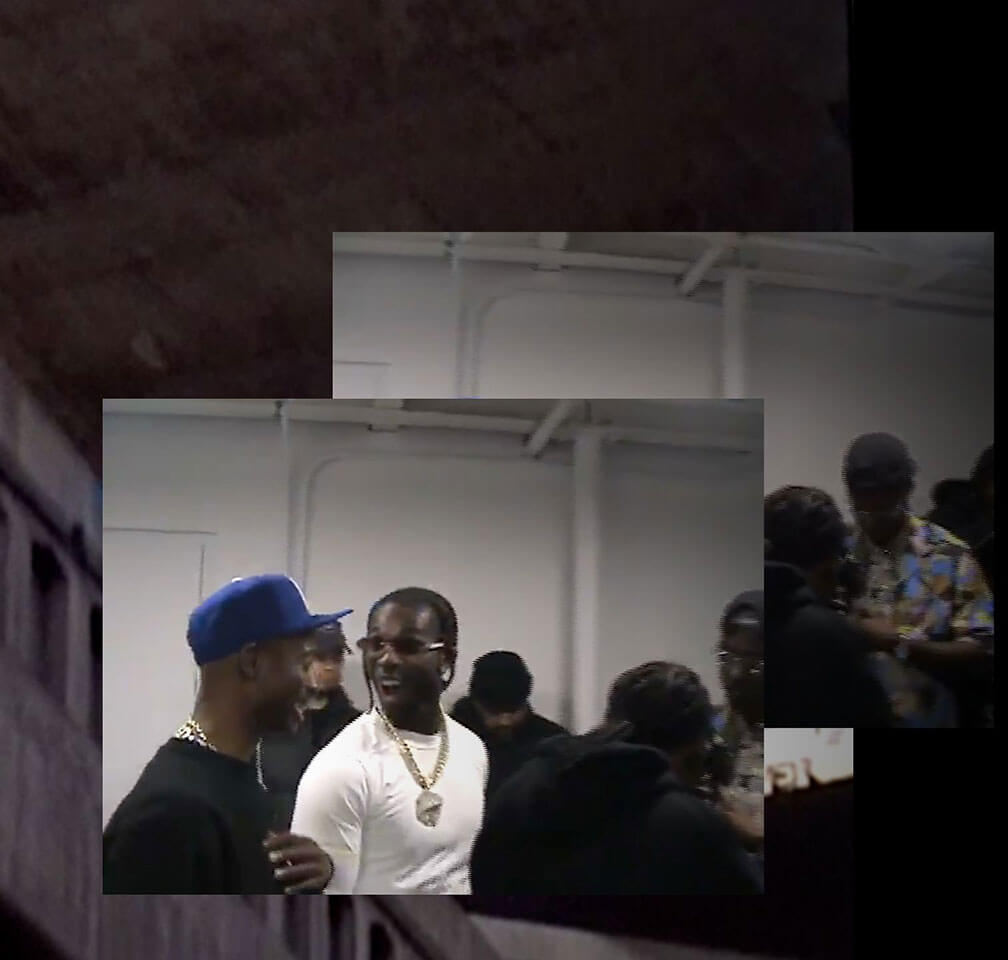
King Combs (rapper): Every time I was in the session with him was always just super lit. It was always like a party, low-key. Just a bunch of the Woos and females.
Steven Victor: Sometimes it would just be me, him, and the engineer in there. Sometimes it would be 100 n****s in there. It really just depended. Whenever he caught a feeling, he would go figure it out. The music would speak to him. Some songs, he would just figure out an idea. He would lay a melody down and come back and re-record it later. Then he started not recording in the booth at all. He started bringing the microphone in the studio with him.
Shivam Pandya: He was a star. You know when he walks in and you’re very aware of his presence. Sometimes he would be in the spirit of the room and just vibe with people. He’d look for real-time feedback. He would be excited by a bar that he spit. Then he’d say something and be like, “That’s fly, right?”
Corey “Cutz” Nutile (engineer): I remember he would always say, “Yo, I need to fight the beat. I need to fight the beat right now!”
Jess Jackson: He used to always say, “Don’t turn me up too loud.” He was like, “No, man, they’re going to hear me. My voice is crazy. They’re going to hear me regardless. My voice cuts. It don’t matter. Just turn me down. Make sure the beat bangs!” That’s rare. I’ve never worked with an artist that says they want to get turned down. He also didn’t like post-production that much—when producers added things to the beat after he was done recording, even though it might make the song sound better—because he was so much about the vibe.
Shivam Pandya: You couldn’t tell him that he had a bad verse or a bad record. To him, it was all the best.
Swirv: Every song was special to him. He knew deep down that everyone else would enjoy it.

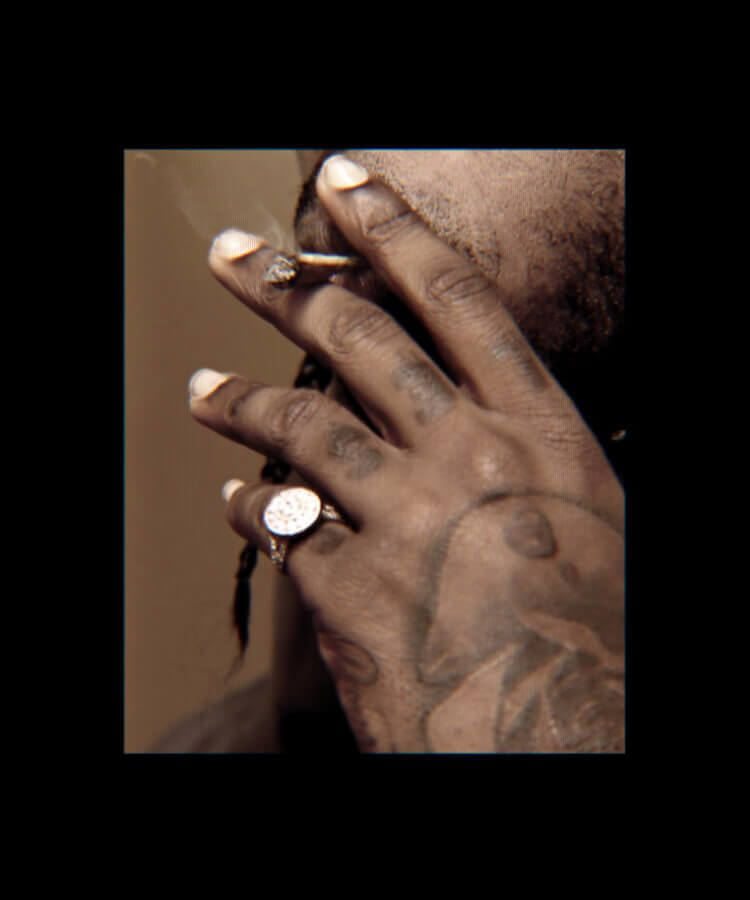
Benjamin Lust: The people he met during those times were giving him real advice. After these conversations, he put the wisdom that people said to him into his music. His lawyer called him “brazen” one time. And he put the word “brazen” in his song. On “Get Back,” he said, “My lawyer said, ‘Papi, why you so brazen?’”
Tyga: He was really growing with his music. He was a sponge. He would take in everything from different artists around him. He was learning so fast.
Benjamin Lust: He was having so many amazing experiences at such a young age. He met 50 Cent for five hours one day.
50 Cent: I struck a chord in him. I would hear influences in some of his choices. He says things in the same tone as me, but he gives a new vibe to it because of his voice and everything. Steven could play maybe nine records where he made references from my records.
Steven Victor: 50 and Pop are like the same exact person. They’re very, very deliberate and straightforward. They play no games.
Shivam Pandya: Get Rich or Die Tryin’ is an album that he remembered from his childhood. He was a big fan of it. 50’s career arc is something that he admired a lot, and he had great respect for everything that he’s been able to do. Having 50 take him under his wing, be so nice to him, and give him so much wisdom was something he really appreciated.
Steven Victor: My goal was to take Pop to 50 Cent so he could see a real-life version of what he could be. I wanted him to see that it’s real and that he could be himself and still achieve these things. I feel like 50 never changed. He’s the same person he was when fucking Get Rich or Die Tryin' came out.
50 Cent: He would come in the studio and all of them were strapped. It was hard telling them not to do it, because we did it that way [years ago], but we got away by the skin of our teeth. I don’t even know how we got away with that. To a point, you’ve got to be concerned, because all of the homies is not rappers. And if they heard some things that you said, and they feel disrespected by some of that shit, you’ve got to be on point or you’ll get left out there in the street.
Steven Victor: 50 is just like an older version of Pop, so when they sat down together, 50 was like, “Yeah, all that shit that you’re doing, I did it, too. The cops were after me. I had to smack a couple people up. I had guns all over the place, too. I had a beef with this person. I had a beef with that person.” And 50 was like, “I just stayed focused and I kept that over there. I did what I had to do.”
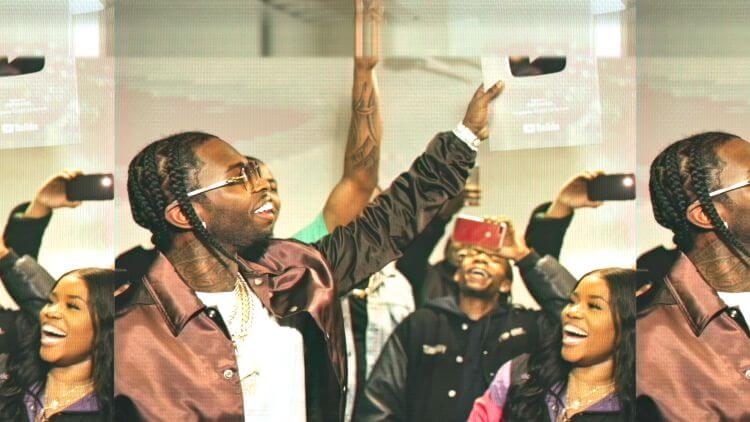

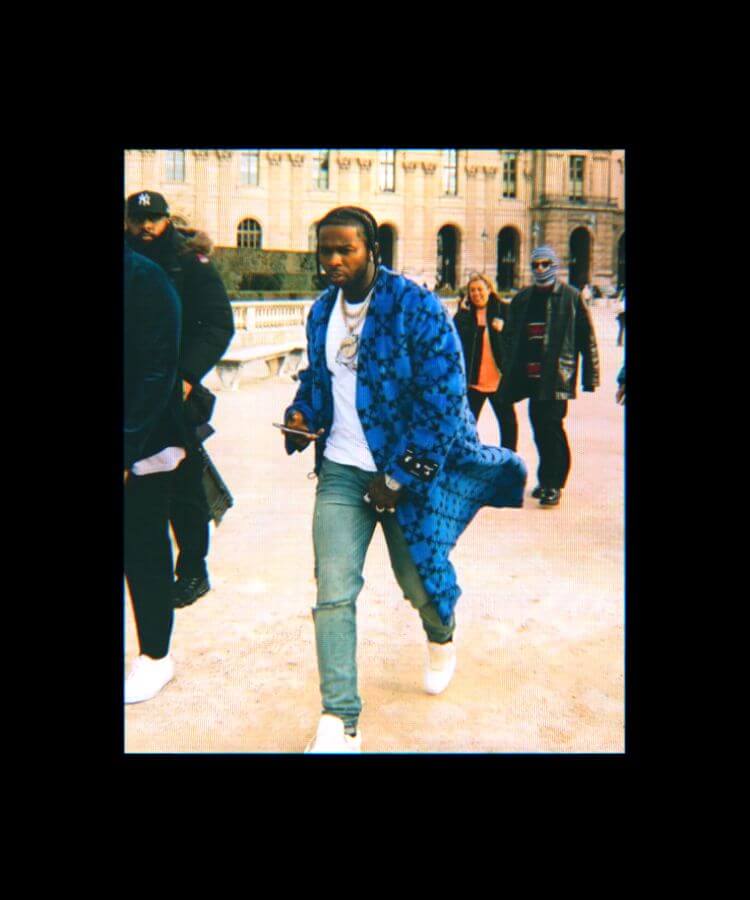
50 Cent: When I’m looking at him, I’m going, “I see what it is. I can see what he’s trying to do, and I believe he can do it.” So I’m telling [the people around him], “Yo, just watch him. Look out for him. Make sure he’s all right. Don’t let him go into situations that he may be willing to do but he shouldn’t have to.” And I told him specifically, “Yo, I know what this is. I know what you’re doing.” I'm like, “Do you want to do this, or do you want to do that shit y’all are doing with them?” Then he’s like, “Oh, shit. I’ve got to make some adjustments.” Because he’d rather end up in the position that I’m in.
Quavo (rapper): He reminded me of Bobby Shmurda when I first met him. That’s what made me click with him, because me, Bobby, and GS9 have a great relationship. It seemed like he had that same hunger as them. We had so many similarities, and I found out he was really young, so I just wanted to help him out and give him game.
Steven Victor: Pop and Quavo realized how much they had in common. Quavo saw a lot of himself in Pop, and Pop saw that Quavo was a real person. They had a mutual respect for each other for different reasons.
Quavo: As soon as Pop got on, he was ready to fly private and shit. So I let him know he needed to take it one step at a time, because this game will swallow you when you get to splurging. I just told him, “Man, you’ve got to take your time. I went from coach to first class to a jet plane, and it was all through years of growing and money managing.” I had to talk to him on some big-brother-type shit. They call me Uncle Huncho, so I just try to lead people in the right way.
After that, we just started talking about life, girls, and what comes with the fame: jewelry, cars, and houses. I feel like I missed that one. I ain’t put him up on game about the Airbnbs and stuff like that. I feel like I would have helped him. Nobody’s got a timeline on their schedule, so you can’t even say that, but I just miss my bro. I felt like if I was around, or near the spot, I could have done something. I don’t want nothing to happen to my partners who I’ve been around and who I’ve given advice to. That’s my guy, man. I miss my boy.
Shivam Pandya: Pop always trusted Quavo. I remember when we went to Paris, we were there with one of the stylists from Off-White, making selections for what he would wear at the show. I chose out the blue coat. I was like, “This is the one—you’ve got to wear it.” He was like, “No, man. It looks like a robe. This isn’t it.” He was sending the pictures to Quavo and Steven. He’s like, “Yo, do I look crazy in it?” And Quavo was like, “Nah, bro. It’s Fashion Week. You’ve got to. That’s the style!”
Quavo: He didn’t really know what to wear. He was like, “Am I supposed to put this shit on? Are you serious, bro? Don’t lie to me.” Then we went to the Virgil show together. He made sure there was a spot for him to sit beside me, so we watched the show right next to each other, and it threw me off at first. I’m like, “Man, this young kid just wants me around him.” But I loved it. I wanted to be around him, too.
Steven Victor: Quavo would always tell me how much love he had for Pop, and vice versa. Pop would always be like, “Yo, I love that n***a Quavo.” They were always on the phone. When we were in Paris shooting the video for “Shake the Room,” me and Quavo were talking about Quavo possibly executive producing Pop’s record. Because when they were working, Quavo was telling Pop different ideas to use on records. He was giving him a lot of game musically, creatively, and just as a man. He was taking him under his wing.
Steven Victor: Right before everything happened in L.A., we were all there working on finishing the album, because he was supposed to go on tour starting the first week of March. So the whole plan for that trip in L.A. was to finish the album. Then we would’ve just been mixing it and mastering it while he was on tour.
808 Melo (producer): The last session with him, he was so happy. He was so lively. That’s what I’m always going to remember about our last moments together. He was just happy and vibing. There was nothing wrong. The next day, I had to go to work with Kanye with AXL Beats, and he was like, “Oh, I’m so happy for you, man. You’re going to work with Kanye!” I was just like, “Thank you, man,” because we literally helped each other along the way.
Jess Jackson: He invited me up to the house, and I was going to go the evening that the incident happened. I got busy with work, though, and I didn’t make it. I fell asleep on the couch, and the next morning I woke up to 100 text messages.
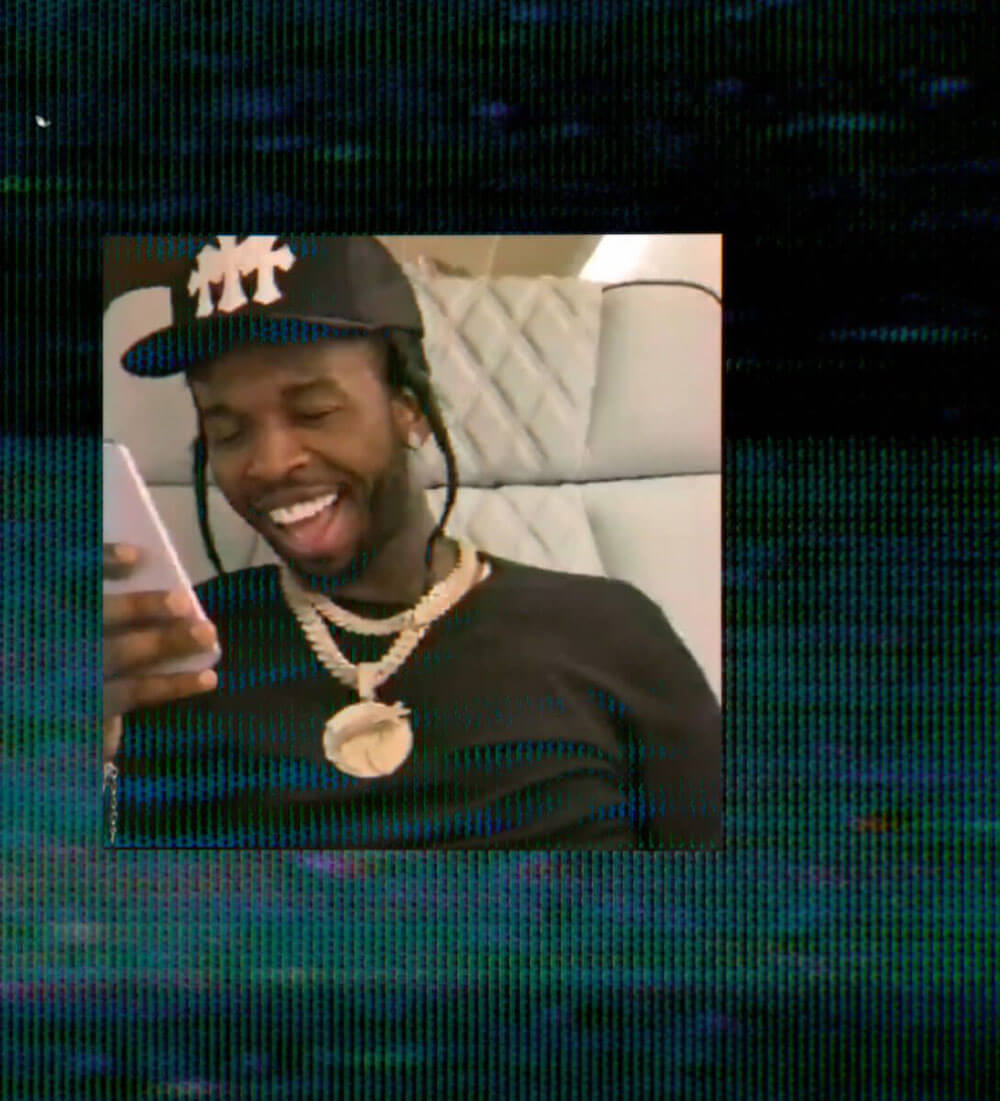
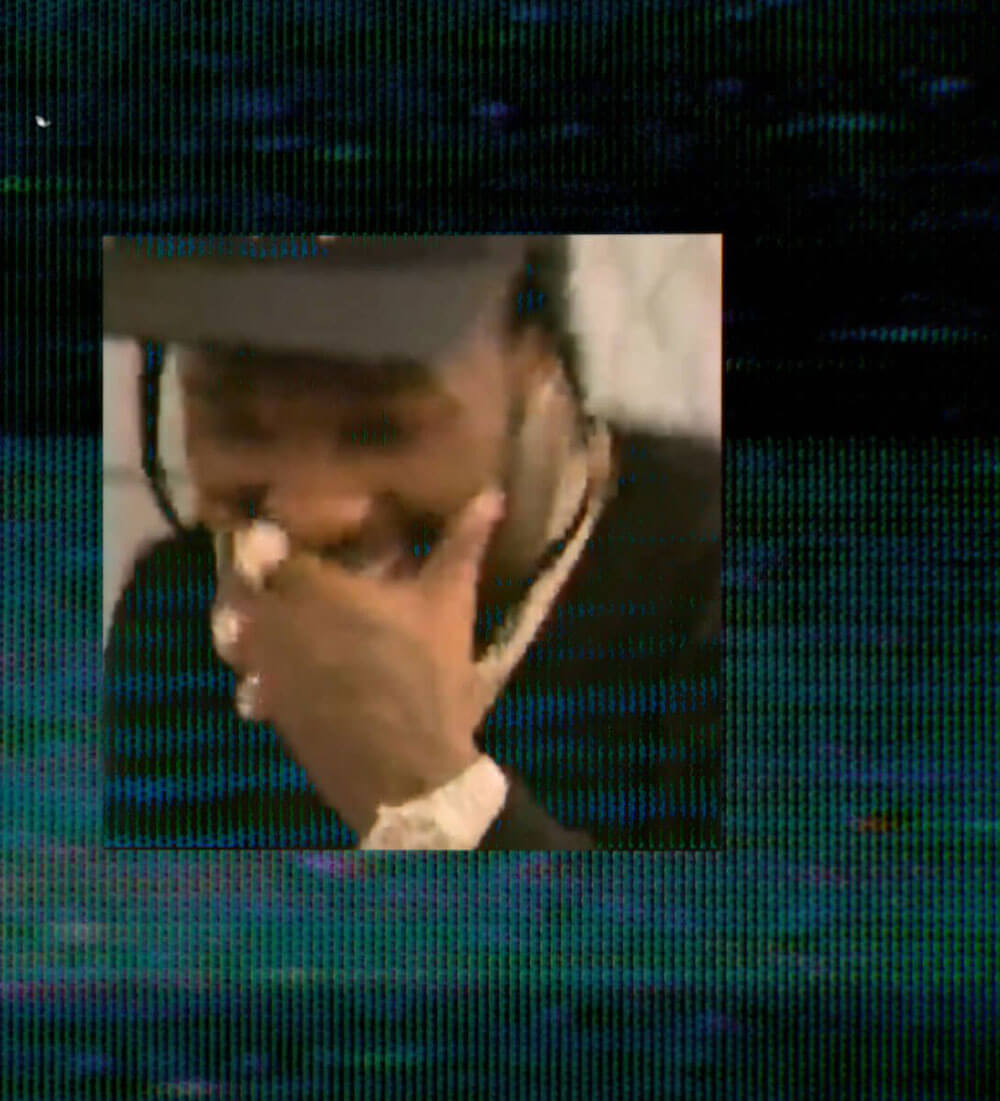
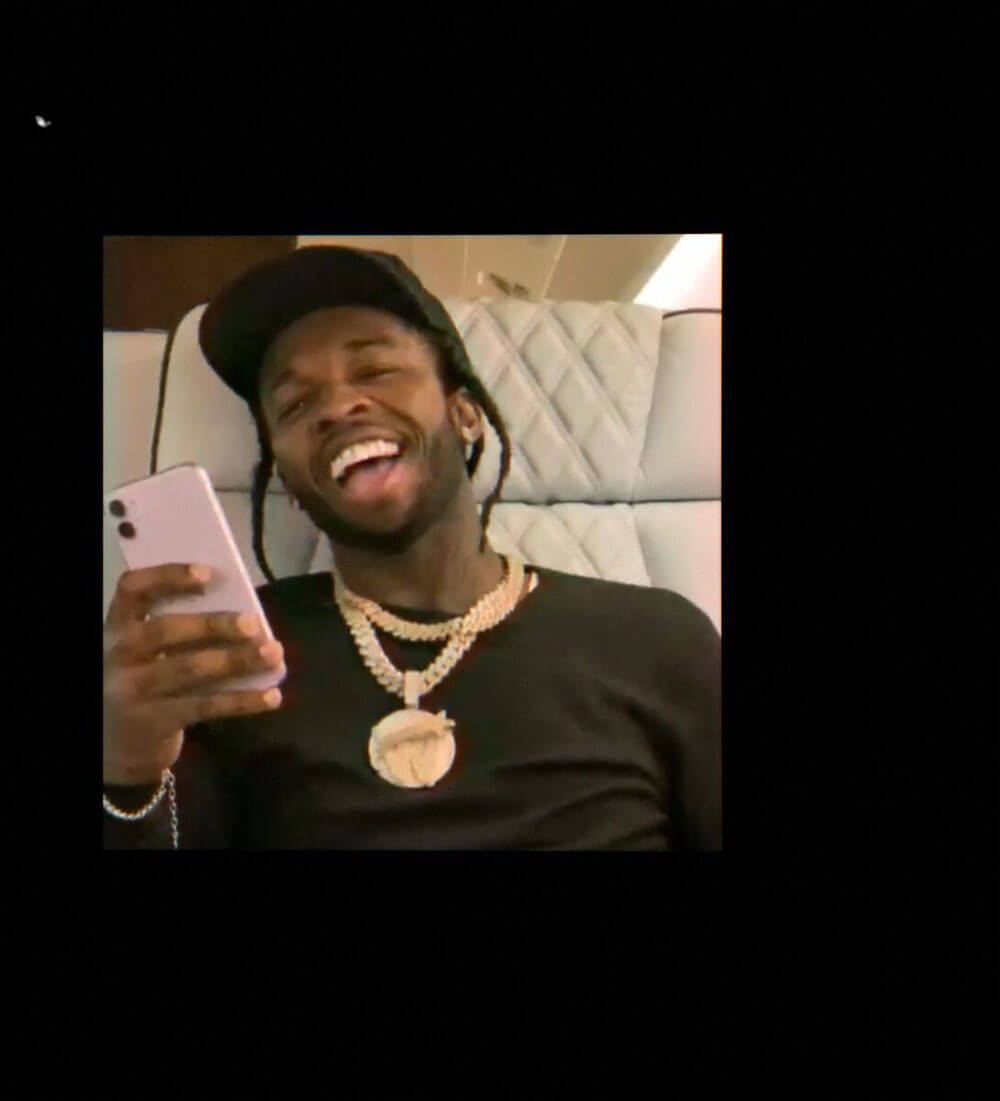
After Pop Smoke was murdered in the Hollywood Hills on February 19, Steven Victor and the rest of the Victor Victor team took on the responsibility to carry out the late rapper’s wishes and release his debut album in time for summer.
Steven Victor: When I got back from L.A. after everything happened, I wasn’t even thinking about putting an album out. That was the furthest thing from my mind. Everything was so blurry for me. But when I met with 50 Cent, he was like, “Yo, you have to. Wasn’t he talking about putting an album out for the summer?”
I said, “Yeah, but I can’t even listen to his music right now, let alone thinking about putting together an album. I’m not in that type of space.” 50 was like, “Nah, you can’t be selfish. He wanted this album out for the summer, so you’ve got to put his album out for the summer. How do you expect his family to eat? That’s the way they’re going to benefit from the fruits of his labor.”
50 Cent: Pop once said, “I just want to take my mom to award shows.” That’s really what he was wanting to do. And I’m like, “Yo, if we make the record right and put it out, she can still do that.” I don't know nothing cooler you could do than that.
Steven Victor: 50 told me, “If you have an issue with putting it together, because he’s no longer here and there’s no way to promote it, I’ll promote it for you. I’ll get in front of it. If you’re not in a space mentally to be able to work on it, I’ll listen to the songs and sequence it for you. And I’ll executive produce it. I’ll get on the songs that he wanted me on.”
50 Cent: I listened to all the music. You had about 50 or 60 tracks. Some of them were not completed—like, where you’re putting space holders instead of what you want it to sound like when it’s finished. Some had a chorus that was finished, and then somebody else rapped to it, and he put a verse on it.
Steven Victor: Eighty percent of the songs were finished the way he wanted them finished. He might’ve added some ad-libs or changed a verse here and there, but most of the songs on the album were done.
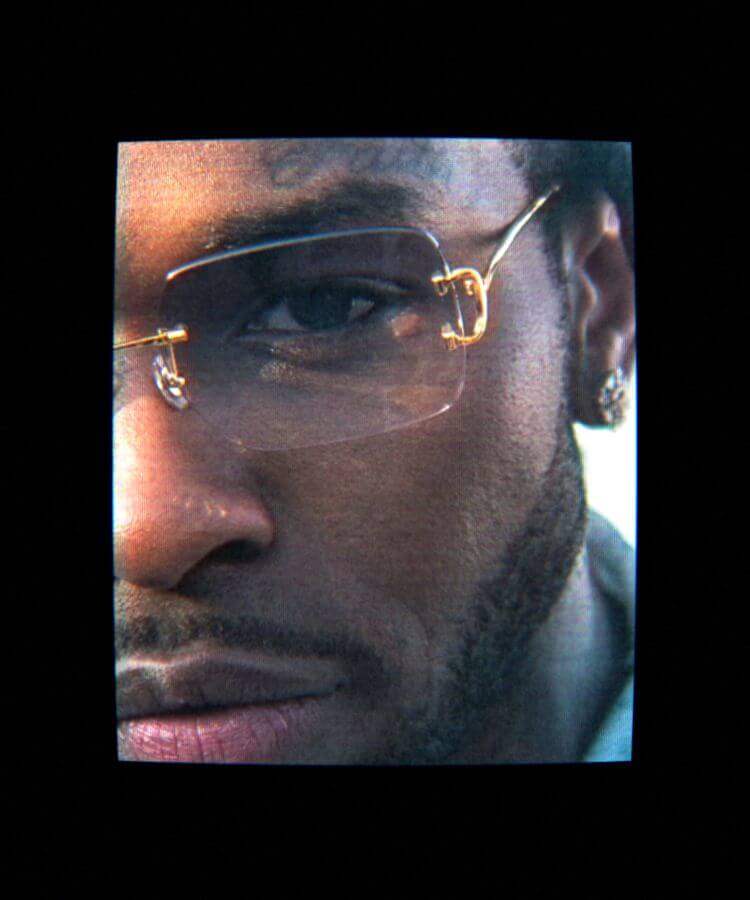
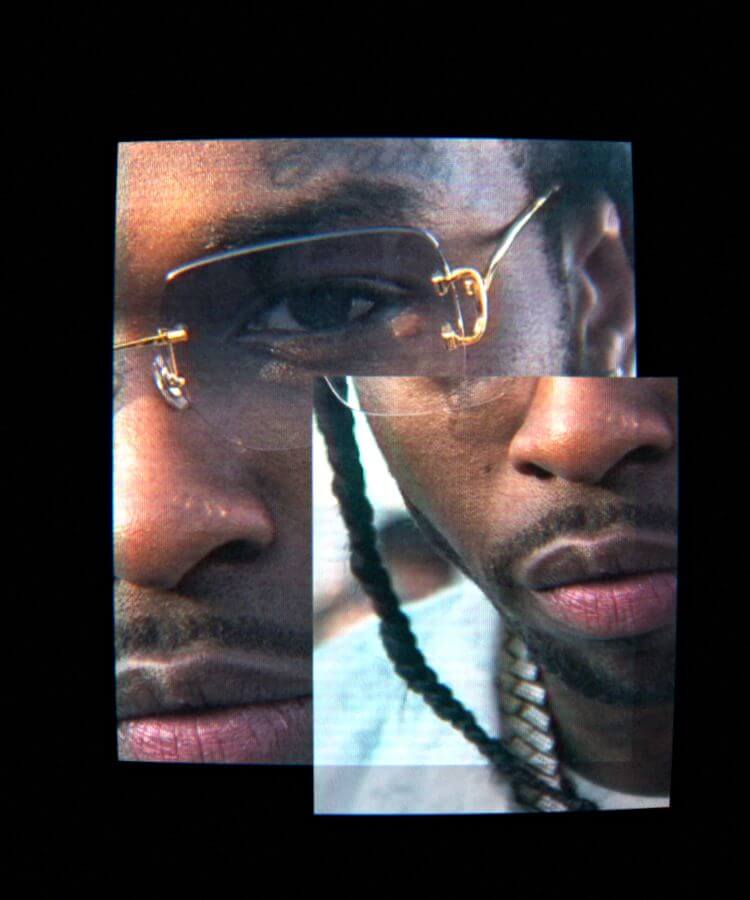
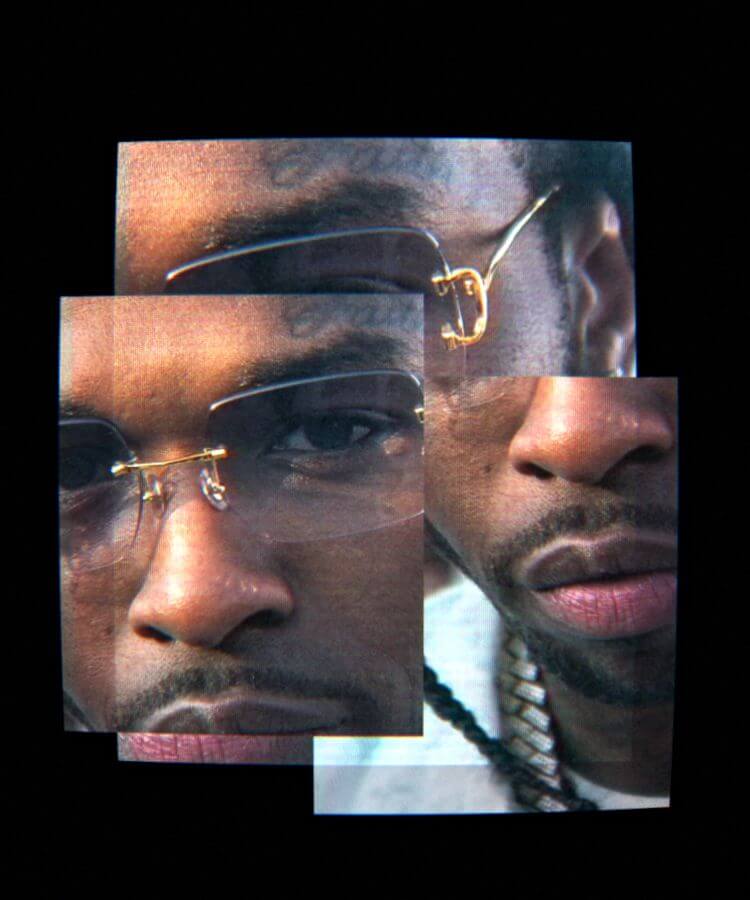
50 Cent: I just wanted to make sure the album was finished the right way. Musically, when you hear it, you know I was involved with the actual selection of what is there. You can hear my musical choices. But those things were already selected by him. When people know it’s executive produced by 50 Cent, and they hear it, they’ll go, “Well, it sounds like 50.” But that’s Pop. That was Pop, but the new version of him.
Xiarra-Diamond Nimrod: “Shoot for the stars, aim for the moon” was a saying that he often said. He would say it in his interviews as a gem for his fans to abide by. He also said it in his songs “Invincible” and “Aim for the Moon,” and he made it the title of his foundation. For us, it was important to make sure that his message was amplified and truly felt around this release. He was also very adamant on doing a documentary about his life, journey, music career, and overall story, so we made sure to make that happen.
Benjamin Lust: This was hard. We were all very close with him. It wasn’t easy to listen to his voice right away.
Jess Jackson: It’s been tough, but at the same time, it’s beautiful to know that I can bring his music back to life. And I know that he trusted in me. I’ve just got to go with the memory of what he would have told me if he was still around. I have to recall all the conversations that I had in the past about previous records and apply that mindset to the new stuff. I want to do him justice, and there’s times where I just wish I could FaceTime him, play him the records, and say, “Hey, do you think that this ad-lib is too early?” Obviously we’re not in a position where we can do that, though, so I just have to use my better judgment.
I’ve had to do a lot of wizardry in terms of creating additional double vocals that didn’t preexist on this album. If he was around to this day, I would ask him to get back in the studio and just lay in an additional double or something. But we’re not in that position, so we have to make do with what I have. He knew exactly how he wanted this album to sound. There were times where stuff was recorded a little bit poorly and I would be in a position where I could re-record it or just finesse it in a certain way where we’re getting the professional sound out of a big studio. But I know he’s not here, so I wouldn’t change it to a large extent.
Sequencing the album, I wanted to make sure the songs butt up against one another, because I really don't like fades. The guys at Republic wanted the tracklisting a certain way, but when I got to sequencing the album, and said, “You know, these two certain songs aren’t going to work together. Can we change it?” They all went back and deliberated and we figured out a different sequence that would work. When you listen to the album, everything is sequenced so each song is in time with one another. I like albums to flow.
I was still producing songs yesterday [June 30], and I turned in the album last night at six in the morning. It hasn’t been a leisurely process over the past six months. It’s been 10- or 12-hour days, every single day. I still have to do the deluxe version now. So the next week is going to be mixing and mastering the additional eight songs.
Ryder Ripps (designer): I was brought on to do design and creative direction for this project, and I was experimenting with flowers in 3D at the time. While I was experimenting, I realized, “Oh my God, this is so perfect.” People use flowers to memorialize people, and by fixing it in metal, it’s taking something that’s fleeting and making it permanent. The album announcement image set the creative that we were running with for the full release. I was hired throughout the duration of the project to work on the packaging and all design aspects. Virgil and I were intended to work together on the cover.
Virgil Abloh (designer): I think it’s important that we as young Black kids and community support and reference each other rather than looking for it outside of our ecosystem. To me, [the original album cover I made] was exactly that. There was a bond and synergy amongst both of us just being ourselves. It was completely organic. I’m a fan of his music, and he was a fan of how I was putting things together on the design front. I actively reached out and I was like, “Man, let’s build.” It's not like, “Let’s build so you can wear my clothes.” I’m all about it being organic. Steven [Victor] and I have a history, so it was like, “Whatever you guys need, I’m down.” Pop Smoke’s legacy needs to be at the forefront. I wouldn’t want to take away from the shine of the project and the art in any way. I think you saw that I quickly was like, “Hey, if this isn’t it... Let’s have the music be at the forefront.” I spoke to his mom in that week of the turbulence [about the first album cover]. We were all aligned and super clear: Let’s have this be about Pop Smoke. It’s not about me. The album’s out and people can hear his voice. That’s what people need to see to get through this moment.
Ryder Ripps: There were about six of my roses that were put into a folder. [When it came time to choose the replacement album cover image], Pop Smoke’s mother selected the one that they ended up using on the final cover.
Shivam Pandya: It was always the plan to have the album of the summer. Pop wanted to have the music that everybody listens to in their car or hears outside when they’re hanging out. He always mentioned having the hottest album of the summer, so we wanted to honor that as much as possible.
Xiarra-Diamond Nimrod: Pop said he wanted it to drop in the summertime, close to his birthday on July 20. So it just felt right to release it now, especially with the state of the world going through a tough time with COVID and with his music becoming the soundtrack of protests across the nation. People need his music right now.
Shivam Pandya: The year was originally planned out in such a way to have the most impact. We were going to go on tour in March. Then the debut album was going to come Memorial Day. The plan was to have the album come right before festivals, and then we would come back and maybe try to drop something else at the end of the year.

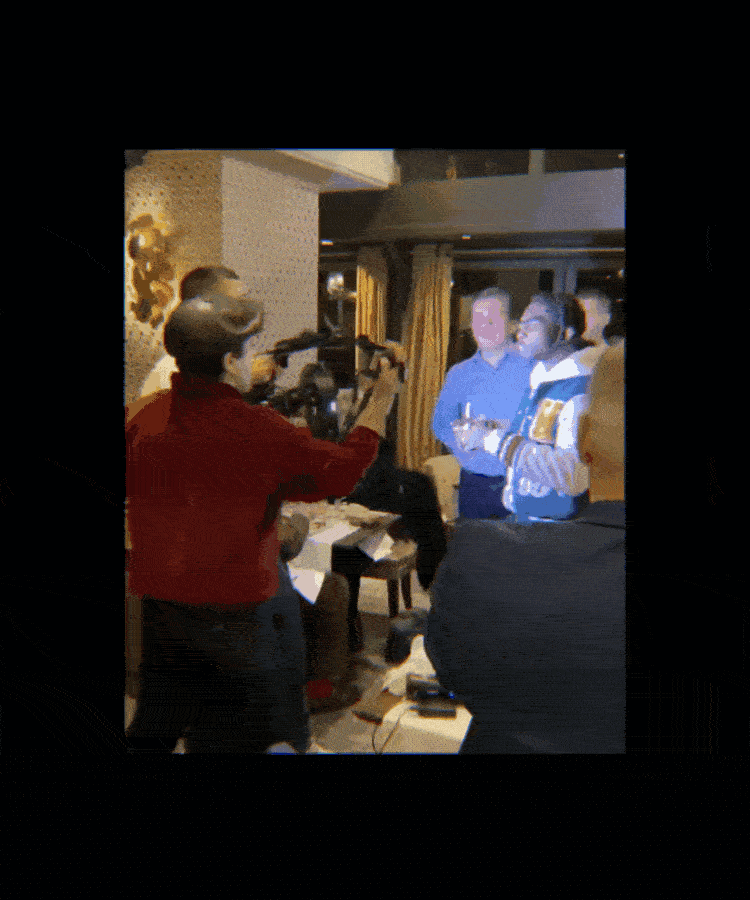
Told by Pop Smoke’s closest collaborators, these are the stories behind each song on Shoot for the Stars Aim for the Moon.
Produced by 808 Melo
50 Cent: The intro is polarizing. It makes you feel, like, “Wow, what the fuck?” It’s the same thing as the record that Khaled put out after Nipsey passed. It kind of makes you feel like he knew something.
Steven Victor: There’s a line in the song where he says, “I look my killer in his eyes.” That’s what 50 is talking about.
50 Cent: I still have to talk to his mother about the intro because of some of the stuff he said. I want her to understand why [people] needed to hear him say that, [so it’s not] just a shock or a surprise to her. Because when it performs well and it’s a success, it’ll be something that she will be able to keep to remind her.
Steven Victor: I was going to put a feature on there, but 50 was like, “Yo, this should be the intro to the album.”
50 Cent: You had to hear [the album] start that way to put the whole scenario in context. Look, my record Get Rich or Die Tryin’, this is what happens when you get around the bullsh*t and you get rich. Pop is what happens when the bullsh*t catches up to you. It’s the same sequence. It’s the same situation. It’s just what happens.
Steven Victor: I think he recorded this song in a studio with Meek Mill in the Bahamas, because there’s a version of that song with Meek on it.
Corey Nutile: Pop was catching a vibe, seeing if it was cool, and we just tucked it for a while. When we made things like this, they were often just quick little ideas, then we’d tuck them in the hard drive.
Jess Jackson: “Bad Bitch From Tokyo” is one of those songs where it’s great for the streets and it reminds you of being in a strip club. I had to replace a couple of the sounds on it, like the drums, but I didn’t change them much. It just needed a little bit of work, and his vocals weren’t the greatest recording, but there’s technology nowadays where we can finesse it and work our magic on vocals and make them sound better than they originally were.
Produced by 808 Melo, WondaGurl, 5ive Beatz, Tyy Beats, Dez Wright, and Dani
Steven Victor: This was the first track that we knew was going to end up on the album. We were in a studio with Travis Scott, working on "Gatti” and a couple other songs. One of them was this record called “Aim for the Moon.” Pop was like, “Yo, this is fire. We’ve got to keep this for the album.” There were other records where we were like, “We should keep this for the album.” But that was the one record where everyone knew it was going on the album. Funny enough, I think it was supposed to be Travis’ record, and he just took it.
Quavo: We were at the studio that we’re always at in L.A., called No Name Studios. I was there with Ye a lot, and I met Rick Rubin there. When Pop pulled up, he had that same feel. He was at another studio, working already, but he packed his shit up and brought it over to me. I had just done “Snitching” while he was on the way, and he did “Aim for the Moon,” like, 30 minutes before. So he came with something, and I came with something. I just hit the spacebar, he hit the spacebar, and it was magic.
5ive Beatz (producer): I was in L.A. at the time, making beats. Travis Scott hit my friend WondaGurl for some beats and she sent him back a pack with a couple of my beats in it.
WondaGurl (producer): My boy Los, who is basically Trav’s right hand, was in the studio with him and asked me to send beats. Pop was really loving them, so he had me fly out to the Bahamas to work with him. It was at a resort or something, but we were all in all different rooms, so we could hop into the main studio room where he was recording. When I sent the beat to Pop, he went in on it. Afterwards, 808 Melo took the sounds and worked on it. It was all over the internet.
Steven Victor: When he made that record, I was like, “Yo, let’s make it the intro to the mixtape.” And Pop was like, “Nah, this should be the intro to the album.” And he was already toying around with that name for the album. Now, it’s not the intro, but it did make the album.
Quavo: Every time a record was really out of here, he would say, “This motherfucker’s going to the moon!”
WondaGurl: “Aim for the Moon” was one of Pop’s favorites. I’m very grateful to be on this project because I’m still a really big fan of Pop. Getting to work with him was something I really wanted to do.
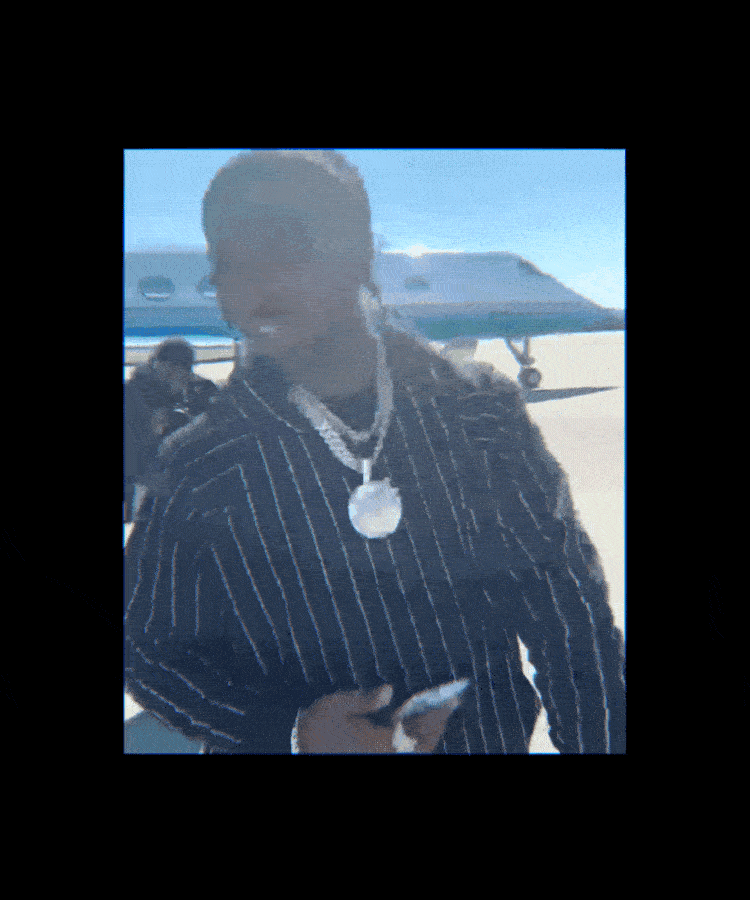
Produced by CashMoneyAP, Palaze, Daniel Mxras, Jess Jackson, and Mike Dean
CashMoneyAP: Pop got the beat from Palaze’s YouTube channel. This was teamwork. Palaze [and Wylo] had done the original beat. [Then we reworked it with Daniel, Mike, and Jess]. Palaze and I did the drums, and I also added some keys and bass.
Palaze: During the time I made that beat, I was just aiming for a Travis Scott vibe.
Steven Victor: When Pop recorded his part, we were all really excited about it. That was one of the first times I heard Pop in that tone.
CashMoneyAP: He’s actually singing. It’s not him gangster rapping like he usually does. So I was just like, “We’ve got to work on that song.”
Steven Victor: When we were in the Bahamas working on the album, Pop played this record out of nowhere. I don’t know where or when he recorded it. But he just played it, and it was only his part at the time. DaBaby hadn’t got on it yet. He played it and I was just like, “Yo, what is that? This is fire. We’ve got to get Lil Baby on it.” The idea was to put Lil Baby and NBA YoungBoy on it, because he had been communicating with YoungBoy through CashMoneyAP.
CashMoneyAP: I was originally thinking about putting NBA YoungBoy on it, because it’s his type of music. He was down to do it, but the timing wasn’t right.
Steven Victor: Creatively and sonically, I thought Lil Baby would sound good on it. And I always knew that Pop wanted to work with DaBaby and have him on the album. So after Lil Baby did his part, I was like, “I wonder if this is the one.” I sent him that record and he sent it back.
Jess Jackson: When Lil Baby finally sent his vocals in, it was like, “OK, now I hear a record.” I had to try and figure out how I could make Lil Baby’s timbre work with DaBaby on the same song. Both of those artists have such bright, mid-forward, nasally vocal voices, and Pop is the opposite.
Mike Dean and I did some additional production on that together. There was an original sample on there, but it wasn’t clearable. We recreated all of the music from scratch, and then we kept Cash Money’s drums on there.
Mike Dean: I co-produced and wrote on “For the Night,” and helped Jess on the mastering a little. I’m glad to be a small part of it. I’m proud of Jess representing M.W.A. [Records] and killing the album.
Steven Victor: He made this super early on. He just took that beat off the internet.
Mobz (producer): Pop Smoke found the beat from YouTube. It was called “Luck,” and it was labeled as “UK Drill Type Beat.”
MoraBeats (producer): I sent a melody and a counter-melody. [Mobz] added the drums: the snares, the hi-hats, the kicks. From there, we loaded the beat onto YouTube.
Mobz: 808 Melo was in America working on Meet the Woo 2. He sent us a snippet of a new song Pop Smoke was working on and, happily enough, it was on our beat.
MoraBeats: Funny enough, we [MoraBeats and 808 Melo] went to the same secondary school. But he was a few years older, so I didn’t really know him. And then I met him in Traphouse Mob, which was the group Mobz and Melo and a lot more were in.
Corey Nutile: This was the lost record, for real. It was supposed to go on Meet the Woo 2, but there were some complications with computer hard drive issues. We got all those things fixed, but when we looked through the hard drive, there was no session for it. So we were literally digging through archives to try to get this record, and then it just turned out that it wasn’t there. To my knowledge, we just have an mp3 of it.
Jess Jackson: Yeah, the session was lost. I think we had a bounce of it, so I remade the beat myself and laid it on top. I just did some tricks to make it work. I didn’t change it, but I laid it out with my own sounds, which were similar to the originals. Otherwise, you’re working with something that’s not really going to match the rest of the sounds of the album. So I had to come alive, finesse it, and do some wizardry to make it work.
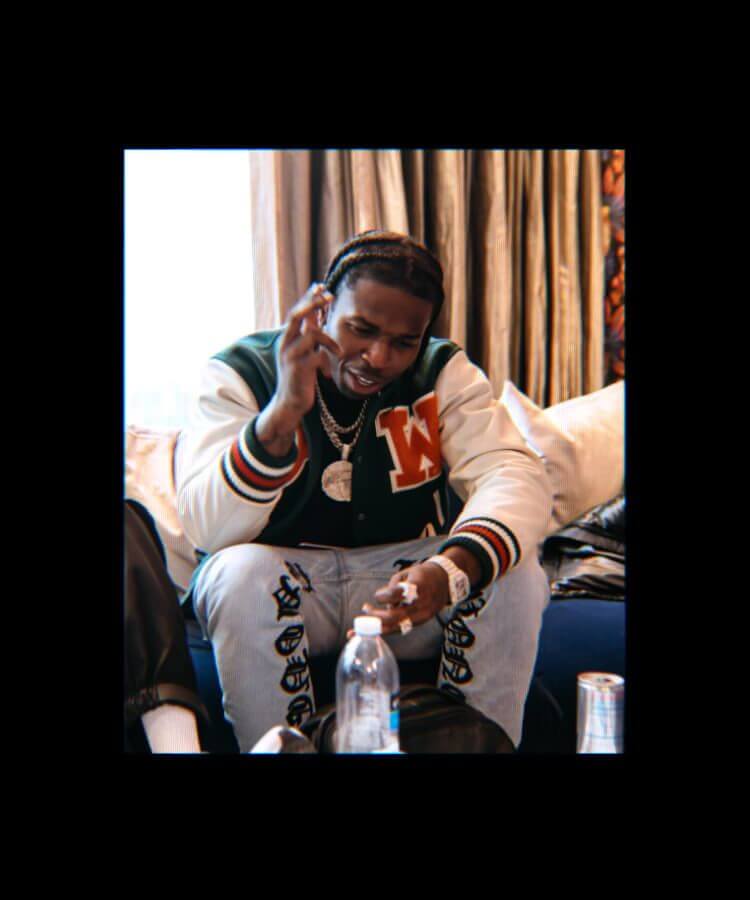
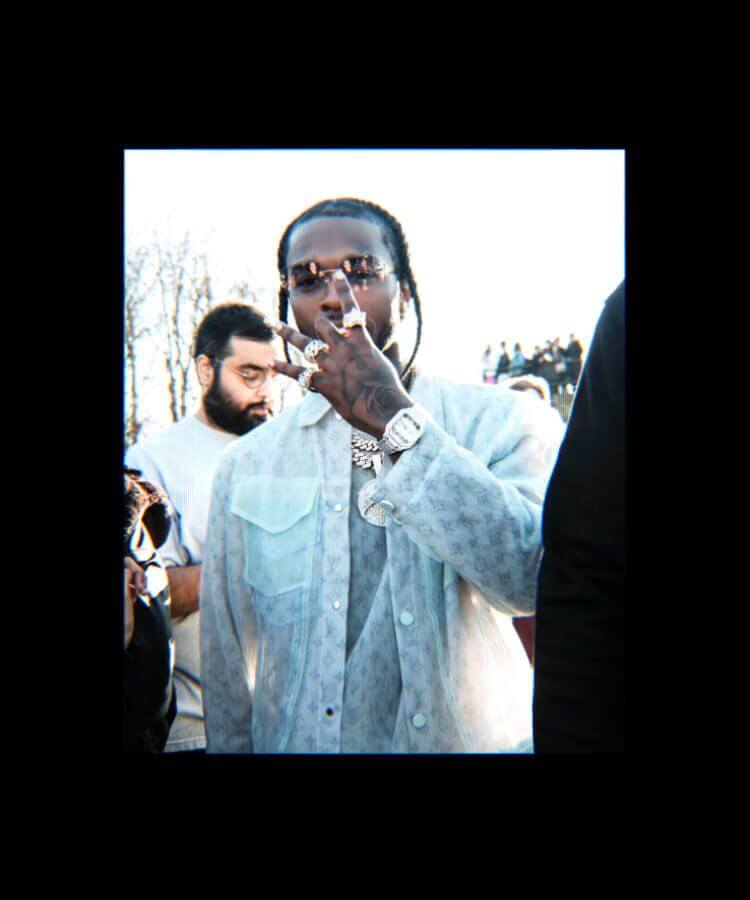
Produced by Swirv and CashMoneyAP
Swirv: In the Bahamas, we were in the studio every single day for a week. We were working on Meet the Woo 2, mainly, but he’d save a few for the album. The last song I recorded with him was “Gangstas.”
CashMoneyAP: Swirv started the melodies, I did the drums, and then Pop got on it.
Swirv: We were trying to find a melody for a different song, “Hotel Lobby.” It had, like, a 50 Cent vibe to it. I was playing some typical drill stuff, but it wasn’t the same sort of feel. But then I remembered that I had made this beat a couple months before, because it also had a 50 Cent vibe to it. Straight away, Pop liked it so much that he wanted to make a complete separate song.
CashMoneyAP: I remember we started super late, at, like, 3 a.m. Pop didn’t want to leave until the song was done. While he was working on it, I was doing post-production on the beat, because it just had keys. I wanted something that was going to bring a gangster feel to it, so I added some strings. It sounds really gangster when it gets to that point on the song. I was thinking about either Dr. Dre or Scott Storch.
Swirv: When Pop was recording, it was really late, so everyone was back to the hotel, sleeping. It was just him and the engineer, trying to finish the song. I’m pretty sure we left the studio at 7 a.m.
Produced by HakzBeats and SephGotTheWaves
Steven Victor: That was recorded early on, and then he re-recorded it. That was in the early stages of when I signed him.
SephGotTheWaves (producer): I did the guitar and my wife [Geovocals] did the vocals. We put it out online a couple years ago. We used to put some of our samples online and different producers would make beats to them. [HakzBeats] bought my sample, but I didn’t know him until he got the song placed. We made an R&B sound and we thought some R&B artist would use it. People wouldn’t have expected Pop Smoke to jump on the sample.
HakzBeats (producer): He did the guitar first and I finished all the drums. I made it in February 2019 and put it on YouTube. I labeled it as a “Tory Lanez R&B type beat.”
One of the A&Rs from Victor Victor [sent] a DM on Instagram and told me that Pop had recorded a song to it and they wanted to use it for an upcoming project. It was for his mixtape before the album, but they decided to take it off and wait for the album.
Shivam Pandya: “Yea Yea” came off Meet the Woo 2 last-minute, because he was like, “Yo, they’re not ready for this. Let’s save that for the album. That’s for when we're doing stadiums.” He had always been building up to that moment.
Steven Victor: I was really begging him to put this song on Meet the Woo 2. I actually had it on the mixtape when we delivered it, and then he called Ben and was like, “Yo, take it off. Take it off!” I FaceTimed him and I was like, “Yo, the song is fire. Why would you take it off the mixtape?” He was like, “I want to put it on the album. That’s album material.” He was very adamant about it.
SephGotTheWaves: Everyone thinks that the vocal that my wife did is this lady called Queen Naija. I think there were rumors that she was on the song originally.
HakzBeats: A lot of people thought it was Queen Naija. I talked to Geo and she was a bit baffled.

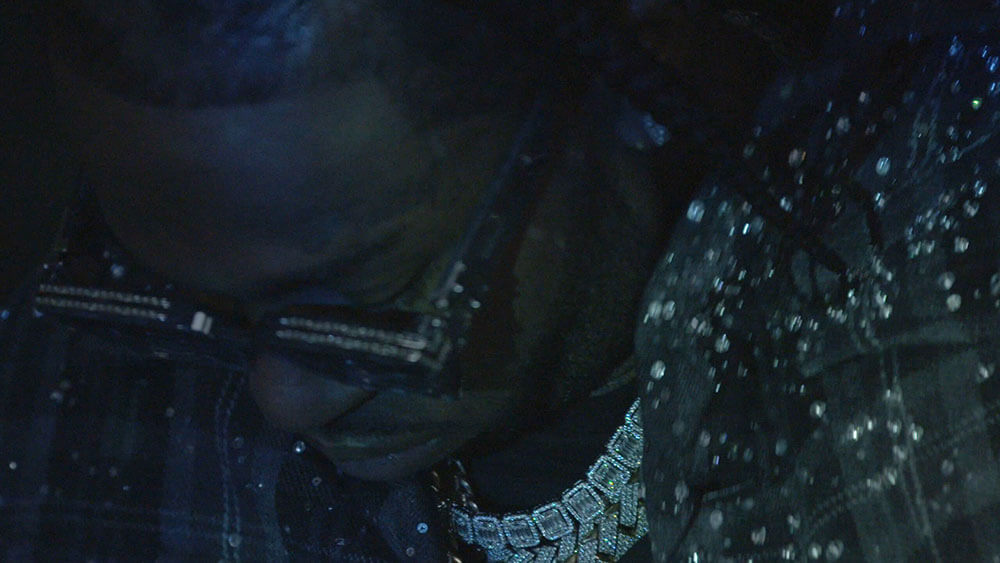

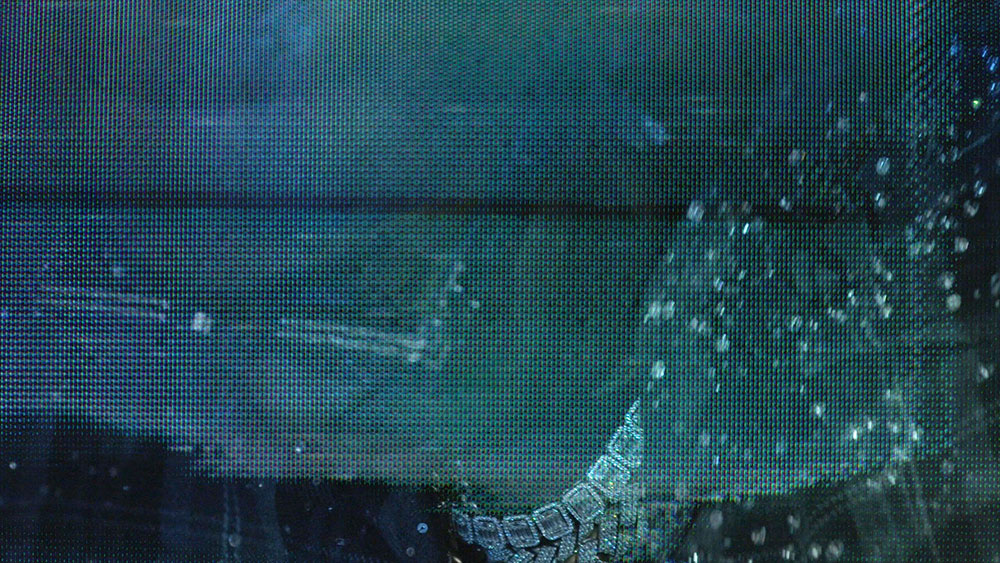
Produced by 808 Melo
Steven Victor: Pop and Swae Lee always wanted to work together. They had a real cool relationship. They started talking on Instagram over DMs.
Swae Lee: I had posted my Giuseppe shoes on Instagram, but I didn’t even say anything to him. We had never spoken before. Then the first thing he did was post my shoes. He was like, “Man, respect to the shoes.” I sent him my number and we just chopped it up briefly. Then we met at Astroworld. It was always love. The energy was always on the same wavelength. The last time we spoke was in February.
Pop was one of the main people that made me really want to jump on a drill beat. I wanted to challenge myself and see what I would sound like on it, so I first recorded it on one of my producer’s beats. I was talking that drill shit. I wasn’t being all soft and sweet on this particular record. It’s uptempo. It’s rage and turn-up shit. And I wanted to make it a coast-to-coast thing, so I sent it to a few people. I was trying to set it up so it could be really big, like, “Y’all didn’t know I could do this vibe, but I knew I could do this. I just never dropped a song like this.”
808 Melo: After Pop Smoke passed away, I had to make a whole new beat for Swae Lee. He recorded vocals, and I just made a new beat from what he did before, on a previous beat that wasn’t mine. I put my beat on top of it.
The original beat was a little too simple. It was a drill beat, but the bassline was just like a trap beat. It was nothing. There was no bounce to it, so I just added some bounce, and that changed everything. It’s actually more fun to work around vocals, especially someone with a big career. No one’s heard Swae Lee on a drill beat.
Jess Jackson: It was a song that Swae Lee had done and another song that Pop had done. We figured out that the tempos were in the same range, and I just merged the two together and made them work. I think we did 30 or 40 versions of the song before everyone was happy.
Swae Lee: We fused these songs. Me and Pop didn’t get to ever spend time in the studio together, because our universes didn’t align like that. We were in different states and different parts of the world at different times, so we never got to get in the studio together in person. He did so much so fast. He was just on it, man. He was on his way to the top.
Benjamin Lust: That’s one of my favorite verses by Pop, because it’s very in your face, with good lyrics.
Steven Victor: I think Pop Smoke’s verse fit perfectly with what Swae was talking about on the hook. And, vocally, it’s an 808 production, and he’s always in pocket with those beats. Just to hear Swae Lee on a drill beat was special, too.
Swae Lee: That was the first [drill song from me], but it won’t be the last. I’ve got another one coming crazy, and I really want to make it a super collab with hella different artists from all over the country. I’m honored to be a part of the album. I hope the world enjoys it and understands where I was coming from. I hope they hear the message on there. And there’s more on the way from me, too, when my album comes later this year.
Steven Victor: At one point, I wanted this to be the first song that we put out. I feel like it represents both sides of what he was doing. It has all the elements of a drill beat, but then it has Swae singing on it. That’s what we were going to use to bridge the sounds from what he was doing on Meet the Woo 1 and 2 and what’s on the album. That was going to be the connector.
Produced by Buddah Bless and SethTheChef
Steven Victor: Before they recorded “Snitching,” they were definitely talking about that artist [6ix9ine]. Pop’s stance [on snitching] was, “We’re not doing none of that.” That’s the stance. “Under no circumstance... We’re not doing that.”
Buddah Bless: The beat was made by me and one of my producers named SethTheChef in the summertime. But I can’t say I made it for Pop Smoke, because all I heard him on at that point was drill. When Quavo played the “Snitching” record for me, it was just him at first. I remember the next week, Pop and Quavo had pictures together, and I was pissed. I’m like, “Damn, I’m trying to work with this n***a.” [Laughs.] I want New York music to thrive again. Then, a week or two later, I got a random call, and he put Pop on it. He killed it on my sound, because he was on that 50 shit, but I know how to take it down South. My sound is always guided by New York and Atlanta, though. It has the New York sound with the Atlanta drums. I would have wanted to do a couple more records with him.
Quavo: I was originally going to make this song for Culture III, but I was working on it when he walked in the studio [that day]. He was like, “Shit, let me go in on it.” That’s why the second verse is, like, half a verse, because he walked in while I was making the song.
[The song was inspired by other things than 6ix9ine]. You know, 6ix9ine ain’t the only snitch in the world.
Shivam Pandya: That was something they recorded during the L.A. sessions, and when they came back with it, we knew it was going to be something big.
Steven Victor: I was on FaceTime with [A&R] AE and Tyga, and they were like, “Hov or Future would sound really good in this song.” I thought that was a good idea, so I texted Hov and I was like, “Yo, this shit is fire. You should put a verse on there.” But he didn’t text me back. [Laughs.] So I’m like, maybe he didn’t like the song, because he always texts me back. No answer is a nice way of saying no. But then AE was like, “Yo, Future would sound great on this. You should put the Wizard on there.”
Future (rapper): I was honored to be able to get on a song with the young legend. The new voice of New York City, gone way too soon but never forgotten. That’s that Woo.
Benjamin Lust: Quavo engineered his own session, which was really cool. We didn’t expect that. Since he was a young kid, he would engineer his sessions. And Pop was saying, “I want to do that!”
Quavo: Engineering came naturally to me. I didn’t even know that I was impressing him, because that was just something that I do all the time. Then he fell in love with the backgrounds I did over the song. When you hear him sing and do the backgrounds and shit now, he always told me he got that from me.
Steven Victor: Quavo, Offset, and Pop Smoke also made a song together called “Light It Up,” which is probably going to be on the Migos’ album. It was originally Pop’s record, though. And when we were working on the album, Ben [Lust] kept on telling me about this song called “Snitching.” For months, I’d be asking Quavo, “Yo, let me just hear the record.” And then, finally, he sent it to me one day. He was like, “I’ll give you this record in exchange for the ‘Light It Up’ record.”
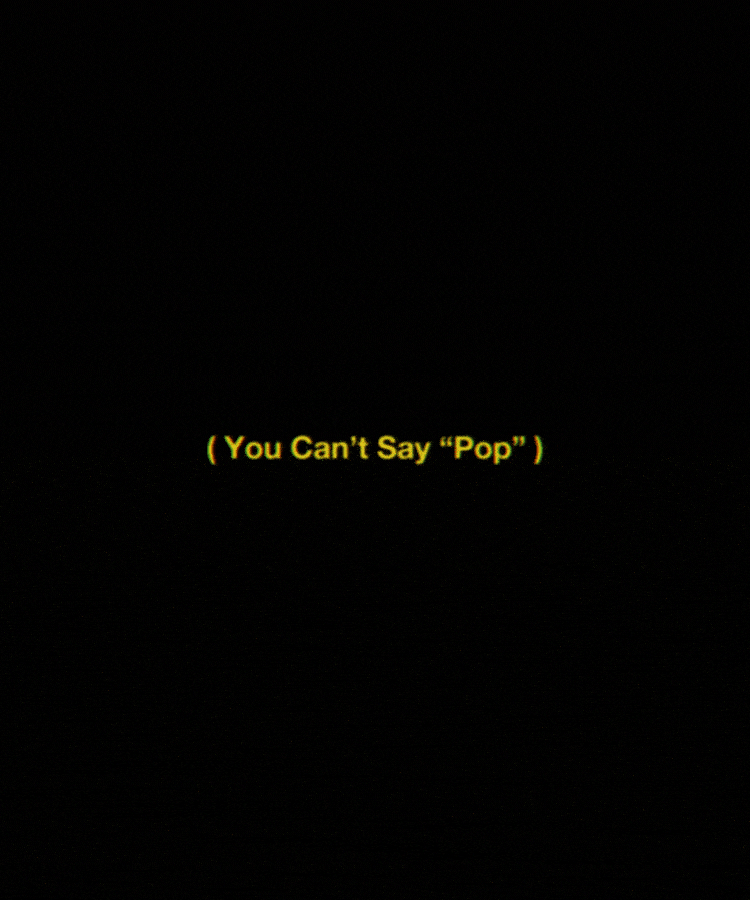
Produced by Yamaica
Yamaica (producer): I made that beat at home in my room, then uploaded it on YouTube. Two weeks later, Rico Beats sent me a message on Instagram saying Pop Smoke wanted to use that beat. I immediately gave the green light and removed it from my YouTube account. I knew it was going to be a hit if someone used it.
Steven Victor: Pop and Rowdy spoke over the phone a bunch of times. Pop was always a fan of Bobby Shmurda and Rowdy. He definitely wanted them both on his album. We tried to get Bobby on the album, too, but by the date we had to get everything done, Bobby was in the box and couldn’t record.
I’ve been speaking to Rowdy a lot, and we were always trying to figure out a way for him and Pop to work together. He was supposed to be on the last mixtape, but then we decided to keep it for the album and put him and Bobby on a record. So I sent this record to Rowdy, and he was like, “I don’t know if this is the one for me to get on. Everything he’s saying is fire, but I really can’t catch the beat.” I was like, “Nah, this is the one for you. You can’t hear it because you’re listening to it over the phone. Just go off what Pop is saying. When you send me your vocals, I’ll put it together. You’ll see what I’m talking about.” So I set up the session for him where he recorded it over the phone.
Benjamin Lust: Pop spoke about this all the time, and it makes me sad to think about. It really would have been a historic moment in Brooklyn hip-hop for Bobby, Rowdy, and Pop to get together. Pop was kind of holding it down when they were gone. And they FaceTimed a couple times and essentially said, “We’re going to shake the fucking streets when we get home.” They wanted to be a part of Pop’s life when he was here.
Corey Nutile: Steven hit me, and he was like, “Hey, I want you to record Rowdy Rebel from jail.” The night before the session, I’m like, “Yo, but really, how am I about to do this?” People always joke, like, “Oh, put the phone to the microphone.” But I didn’t think that was going to work, so I sat for a few hours that night and really set it all up in my mind. I have two phones, so I just did it all live until it worked. The receiving phone, which happened to be Fetty Luciano's phone, had to be sitting near the speakers. Then the speakers played the beat so he could hear it from the phone. And the phone had to be connected to the speakers, like you’re plugging in an AUX cord.
Steven Victor: Once it was done, I sent it to Rowdy for him to hear, and he was like, “Yo, you were right!”
Produced by 808 Melo and Jess Jackson
808 Melo: We made this the month that he passed away. That was the last time I actually saw him in the studio. He wanted me to play some beats, and I played loads of drill stuff. Then I played this beat, and he was like, “Oh, yeah, this is something different. This is what I want.” He didn’t really do a verse or anything like that. He just made a hook. When he was working on it, he kind of had writer’s block. He said he would want to come back to it, but obviously he didn’t come around to it.
Steven Victor: I had never heard that song before. When I first started talking to 50 about doing this, I sent him a folder of all of Pop’s songs. Some of them were ideas. Some of them were songs. He called me and he was singing the hook of this song to me, but I couldn’t even remember Pop doing it. It’s the most obscure joint. From there, that song was all 50. He did everything.
50 Cent: There was a chorus written, and he had left it all the way open. There was no verse taken off of it, so the chorus played, and then I started the record. I was like, “I’m going to send this one to Roddy.”
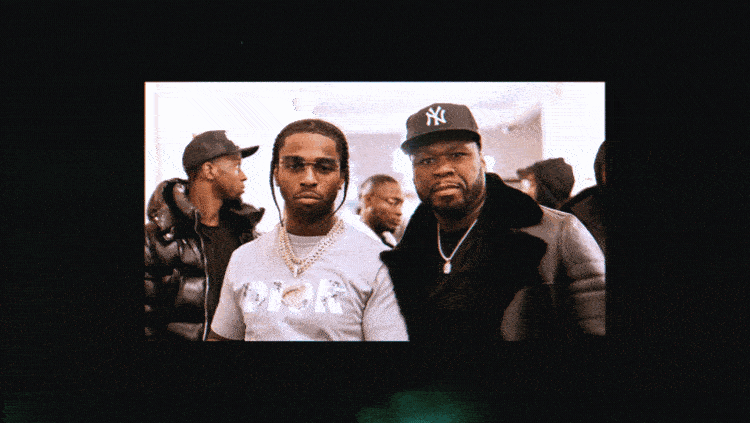
Roddy Ricch (rapper): I remember growing up as a kid, listening to 50 Cent. I wanted to talk to him, just pick his brain, and really get to understand him. So when this crazy situation happened with Pop, it was just a timing thing where we got connected. 50 actually ended up hitting me on Instagram and asked me if I wanted to do something on the Pop album and be part of something bigger. Originally, I just wanted to have a conversation with 50, but then there was so much more I could contribute to what was going on, and I wanted to be a part of it.
50 Cent: One of the first people I talked to about the album was Roddy Ricch. I was talking to him before anything happened. He wanted to work on other stuff prior to that, so he was already sending me stuff.
Roddy Ricch: I wasn't able to catch up with Pop when he was around. You know, we had our little “what ups,” just moving around. But just the guy he was, and the guy I am, I felt like it would happen organically to meet up and talk. Then 50 invited me to be on the album, which is hard. I just wanted to be a part of something that was bigger than life. I wanted to be part of something I felt like I should have been a part of in general.
50 Cent: I recorded my verse while I was going through all his records to find the right tone for the album. There were three records that I recorded, but I didn’t want to over-feature on the record, so I just put the one. You’ve got a lot of artists in hip-hop. There are a lot of guys that want to do something and be a part of it. So less is more.
Roddy Ricch: The song was already put together, and I just went ahead and put my two cents on it. I had heard a couple other songs, but I felt like this one was a good one, because it was different from what you were used to hearing from Pop. It was in quarantine, so I have a studio set up at the house, and I just did it one night. I called my engineer and just cut it. I opened up my back view, because the back of my house looks out at hills and you can see the whole city. So I was just catching a vibe and recorded my part.
808 Melo: Steven Victor texts me. He’s like, “Oh, yeah, Roddy’s going to be on [your] song.” He said it so normal. I was like, “What?!” Because I’ve never had that kind of placement.
Jess Jackson: The verse that Pop wrote to that song was in a different key. Instead of not using the song at all, I talked to Mike Dean. I was thinking of Melodyning the vocals and tuning them. But I couldn’t do that because that wouldn’t be fair to Pop. He didn’t deliver it that way. And Mike was all, “Why don’t you just do a chord change in the whole song?” I said, “Darn, that’s actually a good idea,” so I sat down and did a key change in the song. Now you’ve got 50 and Roddy in B minor, and then the whole song switches up and Pop delivers his verse in G minor, which I think is so dope. No trap songs or drill songs have key changes in them.
Image courtesy of Apex
Produced by Mustard and Bongo ByTheWay
Shivam Pandya: It was the night after the Off-White show in Paris. Pop was jet-lagged and everything. We went to the studio around 11 p.m. or so, and in the room next door to ours was Quavo and Mustard. We just kind of popped in and started talking, then Mustard pulled up a couple records, and it was one of the first that they made. Pop was very excited because I believe that’s the first time he met Mustard.
Benjamin Lust: Pop always wanted to work with Mustard. He said that from the jump.
Quavo: I called Mustard and told him to pull up on me in Paris. Then we played all these West Coast beats. You know, Pop was a New York drill rapper. He didn’t really know how to slide on that style. But I was telling him his voice was so amazing that he could rap on anything. And he was like, “No, man. I’m going to sound like 50 Cent. I want to sound like Pop.” I said, “That’s what I want you to sound like.” And the rest was history with “West Coast Shit.”
Steven Victor: I think it was originally supposed to be Mustard’s record. But I asked if we could put it on this album, and he was like, “Say no more.” When I was listening to it, I was like, “Fuck, Tyga would sound so good on this.” Pop and Tyga were super friendly. He used to talk to Tyga all the time, so I knew he would love to have him on the song.
Tyga: We were all in Paris, but I didn’t show up to the studio. I was knocked out, because we were at fashion shows all week. I fell asleep. So they did that joint, then Steven sent it to me later down the line, and he was like, “Yo, you got to get on this joint.” I just knocked it out, sent it right back. A song like “West Coast Shit” is in my lane, so I just did what I do. But Pop Smoke getting on a Mustard beat? I thought that shit was fire, because you just wouldn’t expect that.
Shivam Pandya: They were trying to find good takeout late at night, and then they made this record. He was complaining about French food. He was very upset at Pizza Hut in Paris. That was his big takeaway. He said it tasted terrible. Something about the cheese and sauce, he was just offended by.
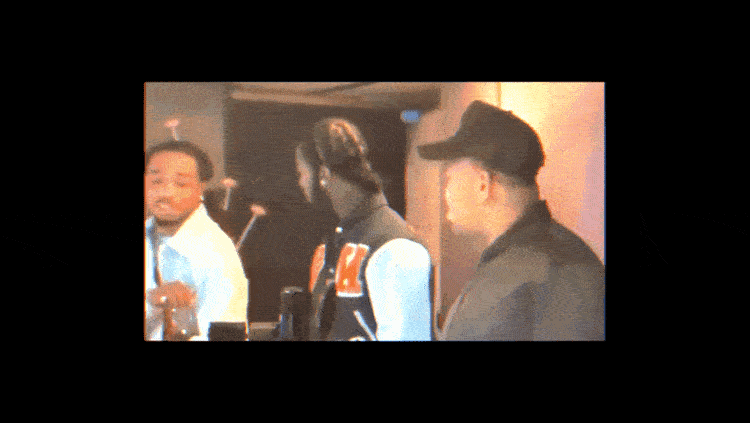
Bongo ByTheWay (producer): [This beat was made when] I was in the studio with Ty Dolla Sign and Mustard, working on Ty’s album. After we completed one song, I started playing this piano melody. Then Mustard just did what he does on the drums. Next thing I knew, I was at a rehearsal with Roddy Ricch, and Mustard told me, “Hey, we got one on this Pop Smoke.” I was like, “Man, that’s crazy.”
When I heard it at first, it was just Quavo on it. But then I saw Tyga posted something online and he had a verse on it, too. I was surprised to even see Tyga.
Jess Jackson: It’s nice to hear Pop on that tempo, because he often raps on the 140s and the 130s [BPM]—the drill tempo. It’s quite nice to hear him on, as Kanye would put it, a Mustard tempo, at, like, 95 BPM. It’s refreshing, and it’s commercial.
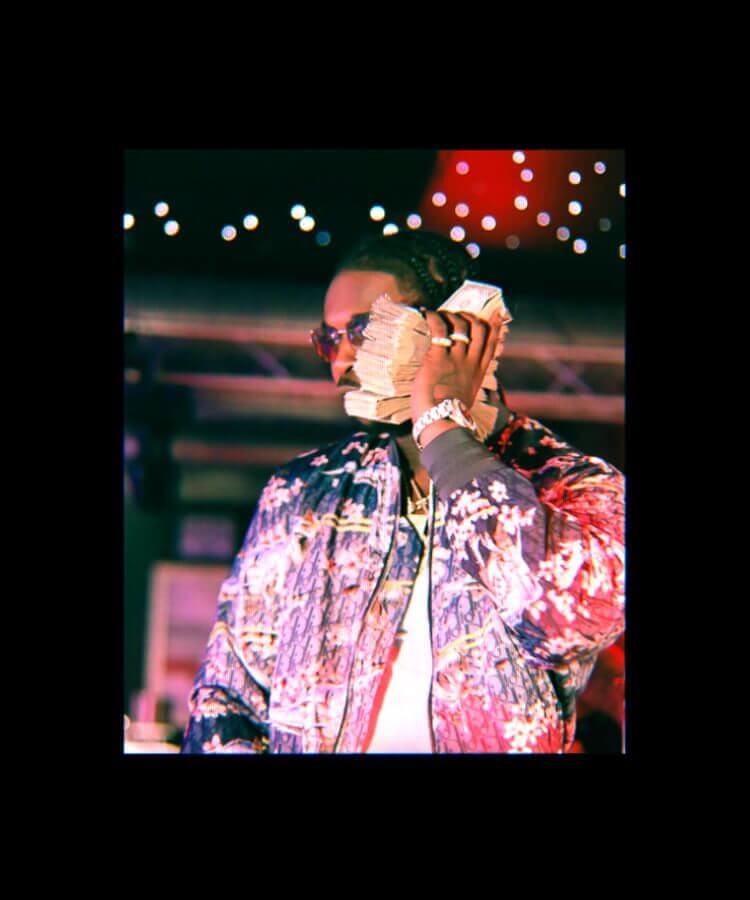
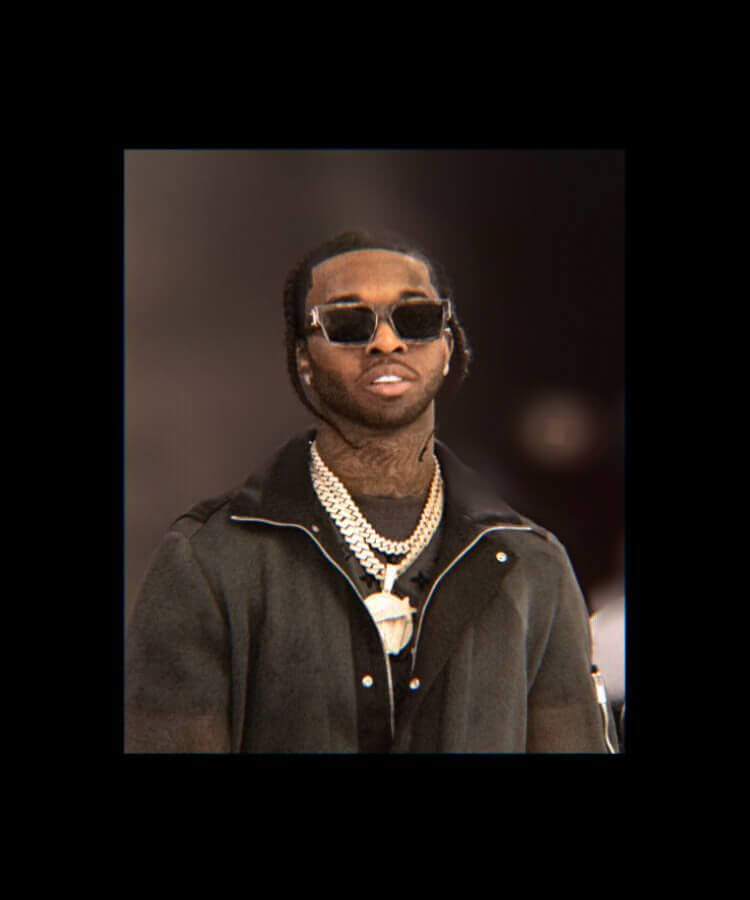
Produced by Palaze and Luci G
Shivam Pandya: We did this in London the week right after Meet the Woo 2 came out. He was just in a good mood, super excited. We were celebrating, and then he went on YouTube and was just looking up “type” beats and found that record.
Palaze: Pop Smoke went directly to my YouTube and found the beat. It was a Kodak Black-type beat, because on YouTube, you’ve got to use different names to hit the certain algorithm. Kodak Black always works for my channel. It wasn’t even really a Kodak Black-type beat. I just called it Kodak Black.
Shivam Pandya: The engineer bounced it right away and Pop made it on the spot. Instantly, he was just like, “Yo, this is the one!” He was so excited. He was listening to it nonstop on the way back, and as soon as he finished, he was like, “This is going to be a massive, international record.”
Benjamin Lust: There’s a video of the session online. It’s him in the studio just going crazy.
Xiarra-Diamond Nimrod: A group of us were at the studio with Pop on February 13, which was the last day I physically saw him, and he was so elated about how the song was coming along. He played the song back over and over and he was endlessly dancing around the studio, saying, “This the one! This about to have the summer on lock.”
Palaze: Pop Smoke really hit a home run on that song, because he’s been making the whole drill stuff, and the dark stuff. But now he’s coming out with some summer-type good vibes with a guitar.
Shivam Pandya: He was like, “This is going to be a worldwide thing. We’ve got to get a Spanish person on it. We’ve got to make sure that this reaches the international territories. What can we do?” He was like, “I need whoever is the most famous Spanish artist. We need her. We need to have a female superstar on there.”
Tyga: Pop FaceTimed me super early in the morning from London. He was like, “Yo, I just did this record and I think you’d be dope on it.” He played it for me, and it sounded so different and fresh, but it also gave you a real nostalgic feeling. It had a real island kind of vibe. I was like, “We should shoot the video in Jamaica or something.” And he was like, “Yo, I want to get a Latin girl on it.” So I told him, “Yo, Karol G would be dope.” Then he was adamant about getting her on it. [Laughs.] He was like, “Yo, get shorty on that for me.”
Steven Victor: When Tyga told me that, I reached out to her people. Interestingly enough, they had reached out to me in November or December, and they were like, “Yo, Karol G’s a Pop Smoke fan and she wants to get on a song. We don’t have a record yet, but we just want to reach out and let you know once we get a record, we’ll hit you back.”
Karol G (singer): I first got wind of his music when he dropped “Dior.” When I heard that, I felt that his sound had a vibe like 50’s, and I was interested in learning more about his story and his music. Of all the breaking artists, to me, I felt that he had the most potential in becoming a superstar.“Enjoy Yourself” has a completely different take on what we are used to hearing from Pop Smoke. It’s more melodic. With this song, he was trying something new, and when the opportunity came to me, I felt that I needed to do something different as well. I was pretty nervous. I have a lot of respect for him, and the pressure was on for me to add something that was on that caliber. But I was very happy with how it turned out.
Tyga: Karol G went crazy on it. It just sucks that he never really got to hear the finished version. That’s one of my favorites on the whole project. People haven’t heard my verse on “Enjoy Yourself,” and that’s one of my favorite verses that I’ve done this year. So maybe that’s coming soon on the deluxe.
Pop and I did three records total. When we started doing music about a year ago, it was a song called “Bugatti Baby.” On the hook, he said, “My bitch go loco.” That was the first drill beat I got on, but it never came out.
Palaze: Two or three days after he got murdered, I found out I had two songs with him. So it changed my perspective a whole lot. [Luci G] told me three days after [Pop died], “I don't know if you know, but we had a song with Pop Smoke.” I was like, “Man, what?” And then, since then, it’s just been leaked all over YouTube.
Corey Nutile: That was a concoction of this other song that he made called “Get Right,” which was a super-old Pop Smoke record that I did. There’s a whole section of that song that he put into “Enjoy Yourself.” He’ll say the same lines in different songs sometimes, but I think that’s cool. “Get Right” was one of my favorite songs from him. Then “Enjoy Yourself” comes around. He went out to London, and he came back with this record and I was like, “Oh my God.” I heard the lines from “Get Right.” I was happy that he still kept that energy onto a new record, but I think both songs could exist because they’re both different enough.
Produced by Dizzy Banko and Beat Menace
Beat Menace (producer): I got contacted by an engineer about possibly doing a beat for Pop Smoke. Funny enough, it was an engineer that works with 6ix9ine. I actually did “Billy” for 6ix9ine. This engineer had a beat already, but they didn’t like it, so they wanted me to put my flavor over it. The cadence was over the old beat, so we had to stick with the same flow, but we changed pretty much every other sound.
Dizzy Banko (producer): I was already trying to work with [Pop]. He DM’ed me two to three weeks before [the murder] happened. He contacted me and gave me his email. So, really, it was a tragic story, and then it’s a blessing in disguise at the same time.
Beat Menace: I needed help with the drums, so I asked my buddy Diz, “Hey, you want to work on this Pop Smoke thing? We got to kill the drums, and hopefully he releases it.”
Dizzy Banko: He wanted me to add in some drums and snares to the record. I put it together, mashed it up, and then I sent it back.
Beat Menace: We sent the song back and heard that they liked it. We started working with Pop Smoke’s engineer, sending stuff back and forth, making sure everything was good for the album. He said, “Change this at this timestamp.” We’d do that and send it back.
Dizzy Banko: Before I even knew [Lil] TJay was on it, I’m like, “This is bananas.” But TJay’s on it now, and it’s kind of a triple win.
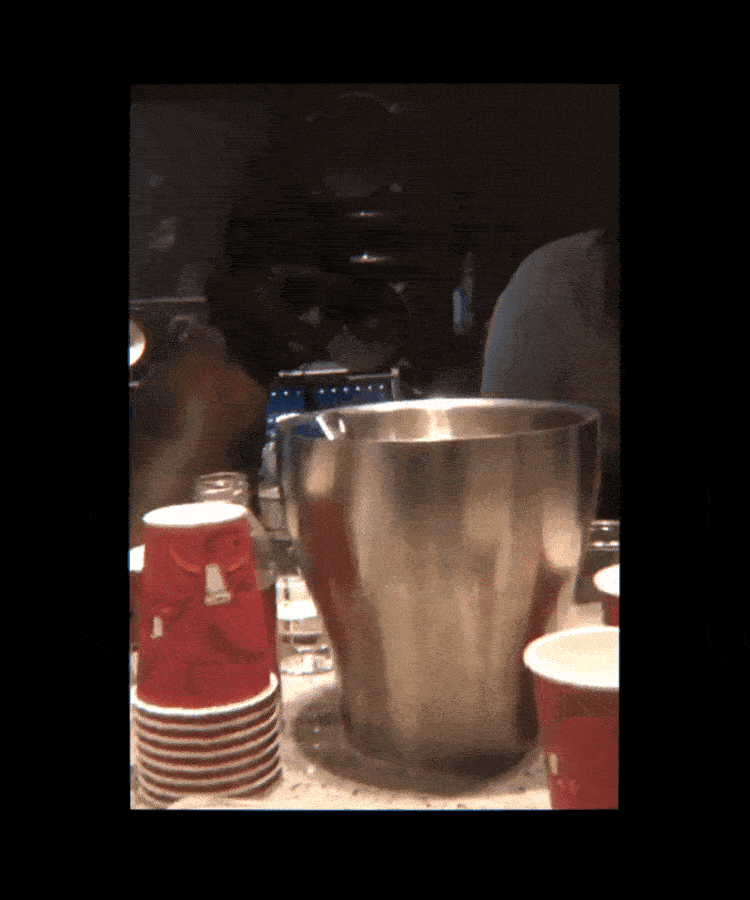
Produced by Duro
Shivam Pandya: “Something Special” is the cover of Tamia’s “So Into You.” We all knew Tamia’s voice and what that sounded like, but hearing his version where he was able to update it and make it his own, it didn’t feel like a cover song. It didn’t feel like he was just copying. It was something that he owned, and it became fully his.
Benjamin Lust: Pop spent, like, five hours one day when we were in L.A. really making it perfect. He was like, “No, I want this ad-lib here, I want this drop here.” It was one of the first times when he really just took complete ownership of the mastering of his product. He had real different records. He wasn’t afraid to get sensual.
Jess Jackson: I worked with Duro, who is the original producer of Tamia’s “So Into You.” He’s a friend, so I worked with him to obtain the stems for the original master session. Duro had to go to his storage unit and dig through crates of old hard drives and CDs. You’re talking 15-year-old systems.
Ken “Duro” Ifill (producer): I actually spent about four hours going through old hard drives and DVD backups, and I couldn’t find it. There were one or two more boxes that I knew had stuff in them, but there must have been, like, 10 boxes on top kind of blocking them. According to the inventory sheet, it wasn’t supposed to be in those boxes. But it also wasn’t in the box that it was supposed to be. So I was like, “Fuck it. I’m just going to give it this last shot.” And lo and behold, it was in the second-to-last box under the stack.
Then, when I got the files back to the studio, I realized it’s in Pro Tools 5. If you know anything about Pro Tools, we’re currently on what would be, like, [version] 13. So it just wouldn’t work. I had to find a company that would transfer the files. I got that done and got the files back and put Pop’s vocals into that session.
Jess Jackson: The song is actually in 432 [Hz]. It’s not in 440. It’s not in the Western frequency. I always wondered, “Why does Pop’s vocal sound so sharp on this song? It doesn’t make sense.” I think that’s part of the magic of the original song. It was in 432, and no one ever knew it. I was a DJ in clubs for years, so I knew the song back to front, inside and out. And when he finally sent the stems over, he did a little thing to it where he made the kicks hit a little harder. He modernized it. I think he just drove the bass a little harder, pushed the kick a little harder, and rolled the top end of the hats off a little bit to make it smoother.
Duro: It has a similar feel, but it’s a little bit darker, because that’s what fits with Pop. His delivery and his aura is a lot darker than Fab’s. [Ed. Note: Fabolous rapped on the original “So Into You.”] So I just did some tweaks.
Corey Nutile: I think PnB Rock might have been on the track [at one point]. That’s all I remember.
Duro: When me and [DJ] Clue were kids, we would sample records. I never thought that at some point people would look to records that we created to now sample. We were the kids that were sampling; now we’re the adults that are being sampled.
Produced by Tash
Steven Victor: “What You Know Bout Love” was another one of the earlier songs he had when I first signed him. He was excited about it. I always liked the original sample because it’s the Ginuwine song “Differences.” Pop found that beat on his own on YouTube.
Tash (producer): I posted the beat in 2019. I put it up as a Playboi Carti-type beat. It was just a marketing thing. And then, around October, I saw a snippet of [Pop] dancing to it. But I didn’t know where he got the beat from, because I never spoke to him. I guess it was YouTube.
Steven Victor: This was one of the records that we thought was too big to put out right away. We always wanted it on the album because it was at that level. When Pop talked about the song, he was like, “Yo, this is for when I’m in my love bag.”
Tash: It’s a love song. I sampled the Ginuwine “Differences” song, and he basically flowed on it in a similar way. I was blown away, because I wouldn’t expect him on that type of beat.
Produced by SpunkBigga
SpunkBigga (producer): I used a sample of Playa’s “Cheers 2 U” and just chopped it up. It was actually a record produced by Timbaland, who I used to be a producer for.
Steven Victor: “Diana” was a record that Pop did with King Combs the night before everything happened in L.A. They had a really good relationship, so I wanted to make sure we put that on the album.
SpunkBigga: A close friend of mine, his name is Trump. He’s real close with Pop, and they were in the studio together. He was like, “Check out this record Christian’s working on.” He let him hear it, and Pop was like, “Oh, that beat is fire.” He was like, “That beat, man. I want that beat.”
King Combs: Off the rip, Pop was like, “I know what I’m going to do with you. I’m going to get you on the joint for the ladies.” At first, I wanted to do a drill song with him, on some turnt-up shit, but he was like, ‘Yo, let’s do one like this.” Then it just came together perfectly.
It was a party vibe in the studio. We weren’t recording in a booth, so everybody had to be quiet for a couple seconds while we recorded. When we were done, we went back to partying and playing music.
SpunkBigga: He sent me a rough draft without Christian on it. After Pop passed away, Christian got back on it and put a new verse on it to go along with what Pop did. The one with Christian on it, the final mix, is the best one to me. I love it.
King Combs: He ended up changing a couple bars on his hook and the verse. Then we met up on the night he passed and were in the studio all night. That night, we edited the song. I was listening to it and making sure that it was ready, but then, unfortunately, everything happened. The messed up part about it was we were really getting to know each other that night, for real. We were really just vibing and talking about everything: the video, jewelry, and just life experiences.
Calboy is on the ad-libs, because Calboy was in the studio with Pop Smoke. And then Calboy was going to be on it with us. When we were having talks about putting it out, at first, I was going to put it out on Valentine’s Day. Then he was going to put it out. It was still up in the air, but we both knew that we just wanted to put it out, shoot a video, and just go crazy with it.
Steven Victor: It’s like a young boy love song. It’s a love song that a 19-year-old kid would make, where they’re just kicking game to a shorty.
King Combs: It’s a smooth party song that just gets you in the vibe. You can hit the Woo to it, but it’s also speaking to a girl. It's just a feel-good song.
SpunkBigga: I was one of the producers for the Untouchables back in the days. We put out an album called Let’s Get It On, and I produced the record with Big and Pac on it, and Heavy D. I hate to say, but all these dope stars dying ended up on my production. Pop is another one of those guys, because he changed the sound. The Brooklyn drill sound is a new sound that Pop made popular. And then there’s his voice. Who sounds like Pop Smoke? Nobody on this planet. I’m blessed to be able to work with that man.

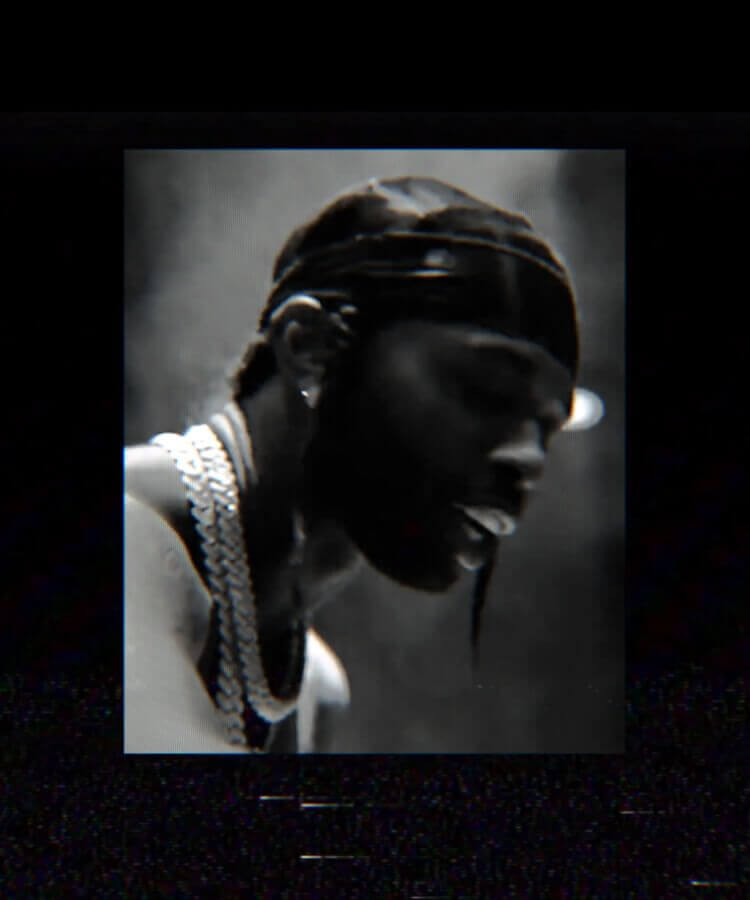
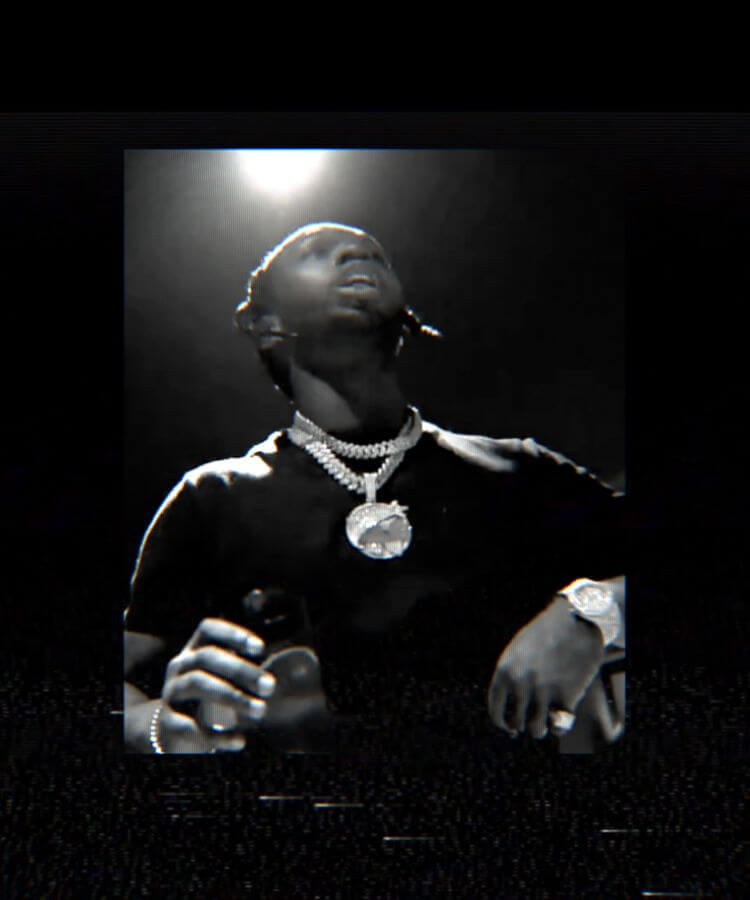
Produced by Young Devante
Steven Victor: This was another record he had before I signed him. When he played it for me, I was just like, “This is incredible.” So we just tucked it away for the album.
Rah Swish (rapper, friend): That was one of the first five to 10 songs Pop Smoke ever recorded. He was like, “Yo, bro, this is a hit record. This is gonna take me over the top.” I’m like, “This is it, but this is too strong for right now.” He was just coming out. He had just dropped “MPR.” He had a great image for [“Got It on Me”]. He wanted to do all the foreign cars. He wanted to get fly. He wanted to do it big. I was like, “Attack the drill scene first. That song could go platinum. You don’t want to just give that to the streets when you ain’t on that platform yet.” He was like, “That do make a little bit of sense.” And after “MPR,” he ended up dropping “Flexin’.”
Young Devante (producer): I made this beat in August 2018. [Pop Smoke found it] on my YouTube channel. It was a Meek Mill-type beat. Most of my beats are Meek Mill-type beats, and I hope in the future I can work with him. [I found out Pop Smoke used it] when one of the subscribers informed me about it.
50 Cent: [When I heard Pop Smoke’s interpolation of “Many Men”], I was like, “Oh, shit!” “Many Men” was a song that almost didn’t make Get Rich or Die Tryin’. If you listen to the tempo of the record, it was the only slow song on there. But [Tony] Yayo was like, “Yo, you’re really bugging. That’s my shit.” It was slower, so it matches what they’re doing right now, tempo-wise. Look, they’re rapping to R&B records now. That was an R&B track to me back then. Now, you can do different cadences, because it’s slower and you’re following the hi-hat instead of the drums. It’s been a shift, musically. You can put this on in the middle of any set with trap music and it’ll ring off.
Jess Jackson: The way I see Pop’s voice is kind of like Nas, The Game, and 50 Cent, from an aesthetic perspective. I always had an obsession with those kinds of voices. They’re husky, bass-driven, scooped-out rap voices. Pop sounded like 50. He even had 50’s mannerisms in his interviews, and you really hear it in this record.
Benjamin Lust: At first, we didn’t have Pop’s vocal files, and the song would have sounded bizarre in comparison with all these fully mixed and mastered songs without them, so I had to track them down. But we were able to make it sound much better, because we found the vocal files.
Produced by 808 Melo, Nagra, and Carson Hackney
Carson Hackney (producer): I’m a sample producer, mostly. So I make the melodies for a lot of songs, whatever that may be: piano, flute, bells, or whatever. My role is making the main melody that plays throughout the entirety of the track. Then Nagra takes my samples and adds stuff. Since he has industry connections, he can send those out to other, bigger producers. So he took that sample that I sent him, added on to it, then sent it to 808 Melo. The original melody is called “Wild West,” because it had a Western flute over it—some Quentin Tarantino vibes.
Nagra (producer): He sent it just as an idea. I did the touch-ups on it. The main concept was already there from him: the whole bounce, BPM, the bell sound, the strings. So I added the flute, did a bit of structuring and mixing, and then I sent it out to Melo.
808 Melo: I played the beat for Pop Smoke in the Bahamas. It has my signature sounds on it, but because of the melody, Pop found it a bit challenging to jump on. When I was playing it, he was like, “Um, I like it, but I don’t know.” I was like, “OK, that might just be a throwaway beat.” But later on, I heard that he jumped on the song.
Carson Hackney: One night, I got a call from a random Australia number that I didn’t know. It was Nagra. He said that he had heard a snippet of the song and immediately knew that it started with my original melody. We’re at the end of the phone call and he tells me, “I think they want it to be on the posthumous album.” I was blown away.
Benjamin Lust: Pop Smoke shouts out his best friend, Mike Dee, right at the start of the song. I wasn’t there for the recording of that, but I imagine Mike Dee was [actually in the room]. Mike Dee was often there. I wouldn’t put it past Pop to just say, “I’ve got Mike Dee to the left of me,” and Mike Dee is really to the left of him.
Jess Jackson: The way that Pop rides that beat is so crazy. He was just on another planet.

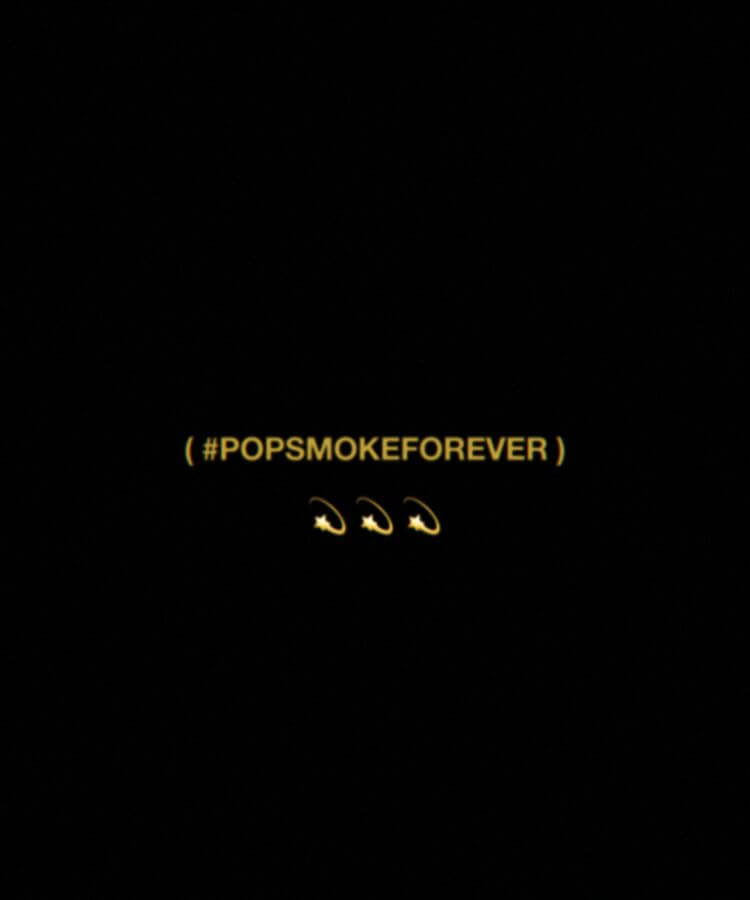
Shivam Pandya: The past few months have been incredibly hard on all fronts, both personally and in the world in general, with coronavirus and the protests from the killings. One of the only bright spots was to see people [at the protests] listening to Pop’s music. That was always nice to see. His family appreciated that as well. The thing with Pop’s music is that it’s angry without being defeated. It’s inspiring. It gives you motivation instead of just being like, “Man, this is sad and I’m bummed.” But it’s something that just makes you think about what’s happening, too.
Pusha-T: It’s super unfortunate that we have to even talk about him in the past tense, when he had so much more to offer. Just think about who we lost. When you hear this album, know that there were five to seven more of these. You could have watched him grow as an artist. He had a whole philanthropist vibe about him for his neighborhood and Brooklyn, too. As awesome as this album is, it’s still sad to think about how much more he had to offer.
50 Cent: Not everything that I do is based on finances and money. This is not about money, because I’m not getting paid off the record. I’m not taking anything from the proceeds from anything that has anything to do with this project. It is completely about how I felt about the kid when we were talking, and what I thought he could have done, period. I think the album showcases that. When people get a chance to really listen to it, it’ll grow on them.
Xiarra-Diamond Nimrod: While we still wanted to give fans all the heat Pop had worked on, just like he would’ve wanted, we still had to be mindful of circumstances. A posthumous album in itself is sensitive and emotional, and we want to make sure that everything is done in a respectful way to honor his amazing legacy.
Shivam Pandya: This is 100% Pop’s album. This isn’t a label-created album. Down to the features—these are all people that he named specifically and said he wanted to work with. These are people that he met, people that he admired, and people that he looked up to and had spoken to. There’s nothing put together for any sort of commercial reason. This was his network. This was his group of collaborators.
This is the template that he had laid out and all the ideas that he said he wanted. These are all the songs that he had always saved and identified as the ones that he wanted to keep for the album. This isn’t a situation where it took nine songs to cut together in pieces. With this, his verse is here, and maybe it was just 45 seconds and there had to be two features to stretch it out, but we always went off of his notes, trying to keep it as honest as possible to what he left for us.
These were his thoughts and the stuff that he cared about. It’s his story. I think that’s important for people to know. Even though he wasn’t like a Kendrick or somebody who has intricate rhyme schemes or uses 7,000 words in a verse, he was still saying something, and he would say something in his way. He was very clear and direct.
50 Cent: Easily, there’s a part two to this, or another album. I say part two because there’s things that were in the playlist that didn’t make the list for the album. So those would be the records that came if it became a part two, because they already sonically match up with what’s there.
Quavo: We’ve still got more songs together. I’ve got records in my phone that he would always send me. He was like, “Huncho Woo, Huncho Woo, Huncho Woo!” Some of the records are already done, and they’re on this album right now, but we’ve got, like, five or six more that will hopefully be on the deluxe.
Steven Victor: I don’t say this lightly: I think the album is a classic. For me, at least, it’s super sad, because this kid was going to be a superstar. I feel like the album showcases how special of an artist he was. He was able to flow through all these different colors and emotions on an album.
Tyga: His music is going to live forever.
Quavo: He was a good soul. He was a good, true guy. I feel like I’ve got an angel in heaven now. If anybody in Pop’s family needs something on my end, holler at me.
Steven Victor: He had all the makings of a special person—not just a superstar musician. I have very, very mixed emotions about it. On one hand, the album is incredible. But then, on the other hand, he’s not here to feel the love of his fans and all the different accolades he’s going to get. Obviously, he’s looking down on us, but he’s not here in the flesh to be able to take it all in. He would have loved it.